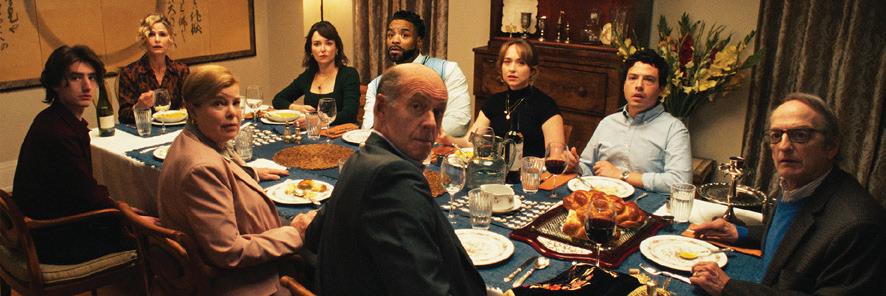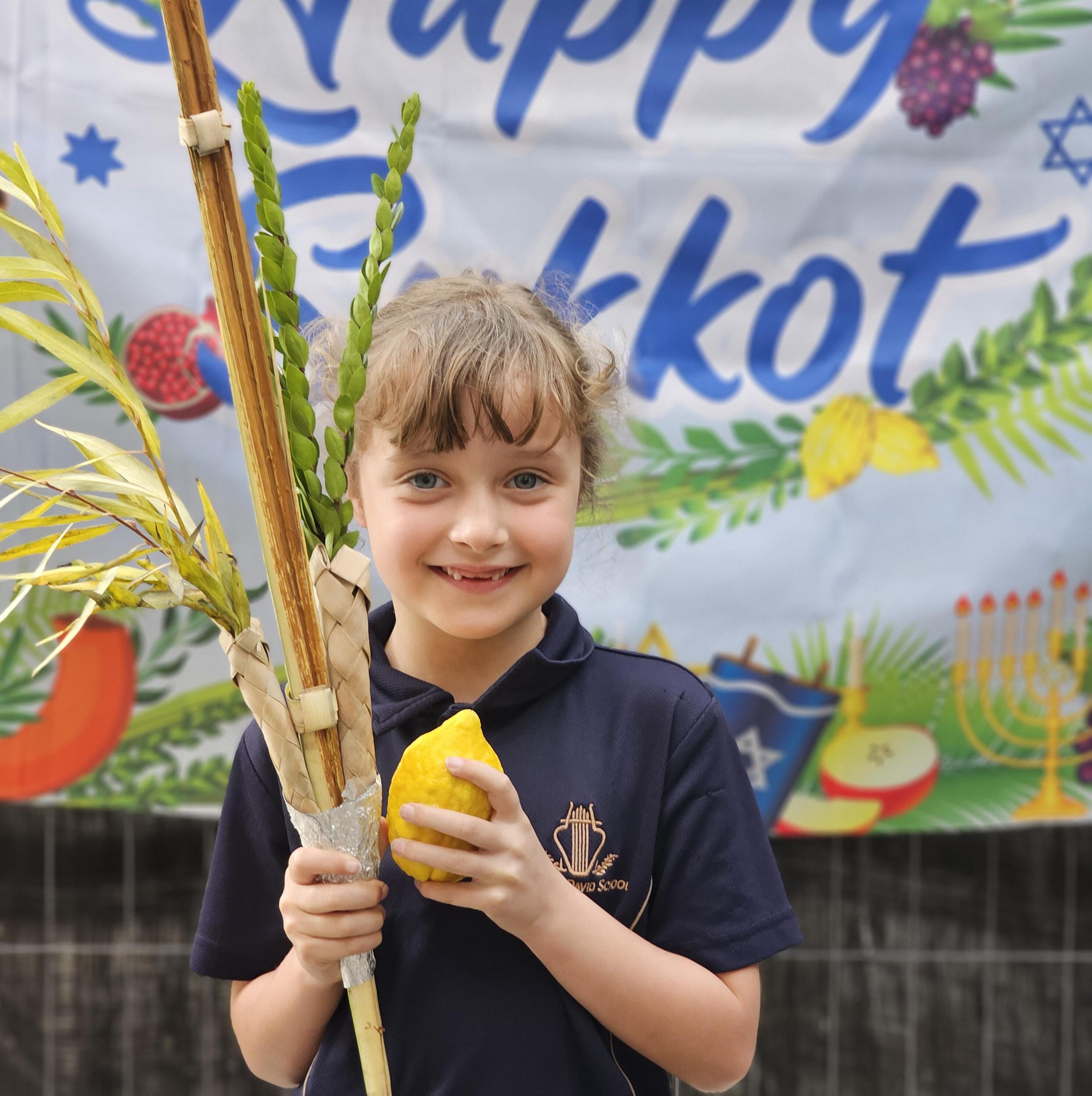




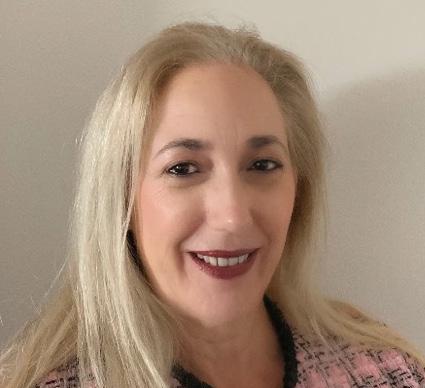
With Rosh Hashanah behind us, we can work out how we would like to live for the next year. During Sukkot we consider what it meant for the Israelites on their Exodus through the wilderness until they reached Canaan. We also give thanks for the harvest.
In 2025, our reflections are marred by anxiety as we face rising antisemitism and a world in flux. So, understandably, it can be difficult to find positives and relax.
Take some time each day to focus on what brought you joy, achievement or pleasure – small or large – over the previous 24 hours.
Broadly, we are encouraged to look at the big things. Big milestones, such as first steps, significant birthdays, graduation from high school or university, the first big overseas trip and so on. However, if we live life only taking note of the big things, we can overlook the small ones. We are constantly future focused, which drives anxiety. We forget to be in the moment, as we are always striving for something. Psychological practice encourages being present to ease stress. Living mindfully enables us to see and experience the

small, as well as the large. I share with you a piece that I recently came across. Whilst its authorship is unknown, the content is a wonderful reminder of how to manage our daily lives.
“Recently, I emailed an old friend who is approaching 80 and asked her what sort of changes she’s feeling in herself. She sent me this beautiful reply.
1. After loving my parents, my siblings, my spouse, my children and my friends, I have now started loving myself.
2. I have realised that I am not “Atlas”... The world does not rest on my shoulders.
3. I have stopped bargaining with fruit and vegetable sellers at the market. A
few dollars more is not going to break me, but it might help the poor fellow save for his daughter’s school fees.
4. I leave my waitress a big tip. The extra money might bring a smile to her face. She is toiling much harder for a living than I am.
5. I stopped telling the elderly that they've already narrated that story many times. The story makes them walk down memory lane and relive their past.
6. I have learned not to correct people, even when I know they are wrong. The onus of making everyone perfect is not on me. Peace is more precious than perfection.
7. I give compliments freely and generously. Compliments are a mood enhancer, not only for the recipient, but also for me. And a small tip for the recipient of a compliment, never, NEVER turn it down, just say "thank you”.
8. I have learned not to bother about a crease or a spot on my shirt. Personality speaks louder than appearances.
9. I walk away from people who don't value me. They might not know my worth, but I do.
10. I remain cool when someone plays dirty to outrun me in the rat race. I am not a rat and neither am I in any race.
11. I am learning not to be embarrassed by my emotions. It’s my emotions that make me human.
12. I have learned that it's better to drop the ego than to break a relationship. My ego will keep me aloof, whereas with relationships I will never be alone.
13. I have learned to live each day as if it's the last. After all, it might be the last.
14. I am doing what makes me happy. I am responsible for my happiness and I owe it to myself. Happiness is a choice. You can be happy at any time, just choose to be!
Why wait until you’re 60, 70, or 80 to live like this? Start now. Any age is the right age.”
Anne-Marie Elias is a psychologist in clinical practice for 25 years.
7. Where beauty is, to the beholder
8. Az ___
9. Apple app replaced by Messages
10. Jewish community (Var.)
11. Nevada city
12. Garden figure
13. Hammer sounds
17. Nordic sport
20. Big name in bulk food
22. Broke into and stole from
23. Stage direction
26. "And you?" to Caesar
27. Relief reactions
28. Word with Joshua or rubber
29. Hook-billed wading bird
30. Poetic spheres
31. Kiddush option
32. What the 12 tribes never truly did again after the split with Rehoboam
35. Words of admittance before "a mistake"
36. "___ you kidding?"
37. Phone caller's disappointment
42. Slackers and loafers, e.g.
43. Nickname for beloved "Sandlot" character Benny Rodriguez
44. Sephardic singer Paula
46. Brand name that's Japanese for "precision"
47. Dine, in Dusseldorf
48. Advanced degrees?
49. Angel's band of light
50. Ride summoned by phone
51. Home of "The Starry Night," in brief
52. Amazon alternative
54. Article in many a hip-hop title
55. Nob preceder
Moriah College in Sydney has cemented its reputation as one of the leading sporting schools in the country, after an extraordinary campaign in the Bill Turner Cup finals.
The team secured a thrilling semi-final victory over Queensland-based Palm Beach Currumbin State High School, earning its place in the final two playoff.
There, Moriah faced Victoria’s Maribyrnong Sports High School in an epic grand final between the two finest 15 and under sides.
Despite a valiant effort, Moriah went down 0-2, finishing runner up in an 850team soccer competition covering four states – a remarkable accomplishment.
Moriah’s head of sport Dom Helene praised the boys for their character and determination.
“This result is about more than about football. It’s about teamwork, resilience and the pursuit of excellence. To be ranked number two in the nation is an historic achievement that reflects the very best of our college values,” Mr Helene said.
The journey to the finals was met with overwhelming support from students, staff, parents and the broader Moriah community, who cheered the team on every step of the way.
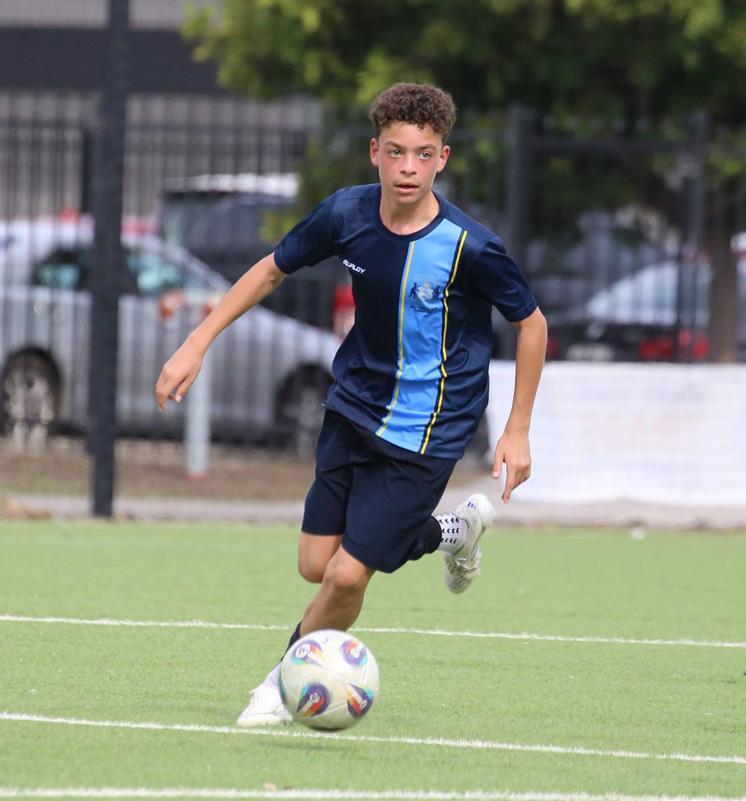
Special mention must be made to coaches Jason Hayhurst and Alan Blain, whose dedication, strategy and passion helped guide the players to this extraordinary success.
Those representing Moriah in the historic campaign included Amitai Kadar, Gerry Joseph, Ezra Newfield, Michael Rudolph, Ram Schroder, Adam Sher; Tobi Eckowitz, Bayley Kassel, Ben Katz, Nathaniel Mizrachi, Jedd Movsowitz, Jesse Opit, Leo Rabinowitz, Aaron Roussos, Adam Selby, Eden Smoli, Benjamin Zaidel, Jacob Zaidel and Jonah Bloch.
What they did together stands as a landmark moment in the history of Australian schools’ football.

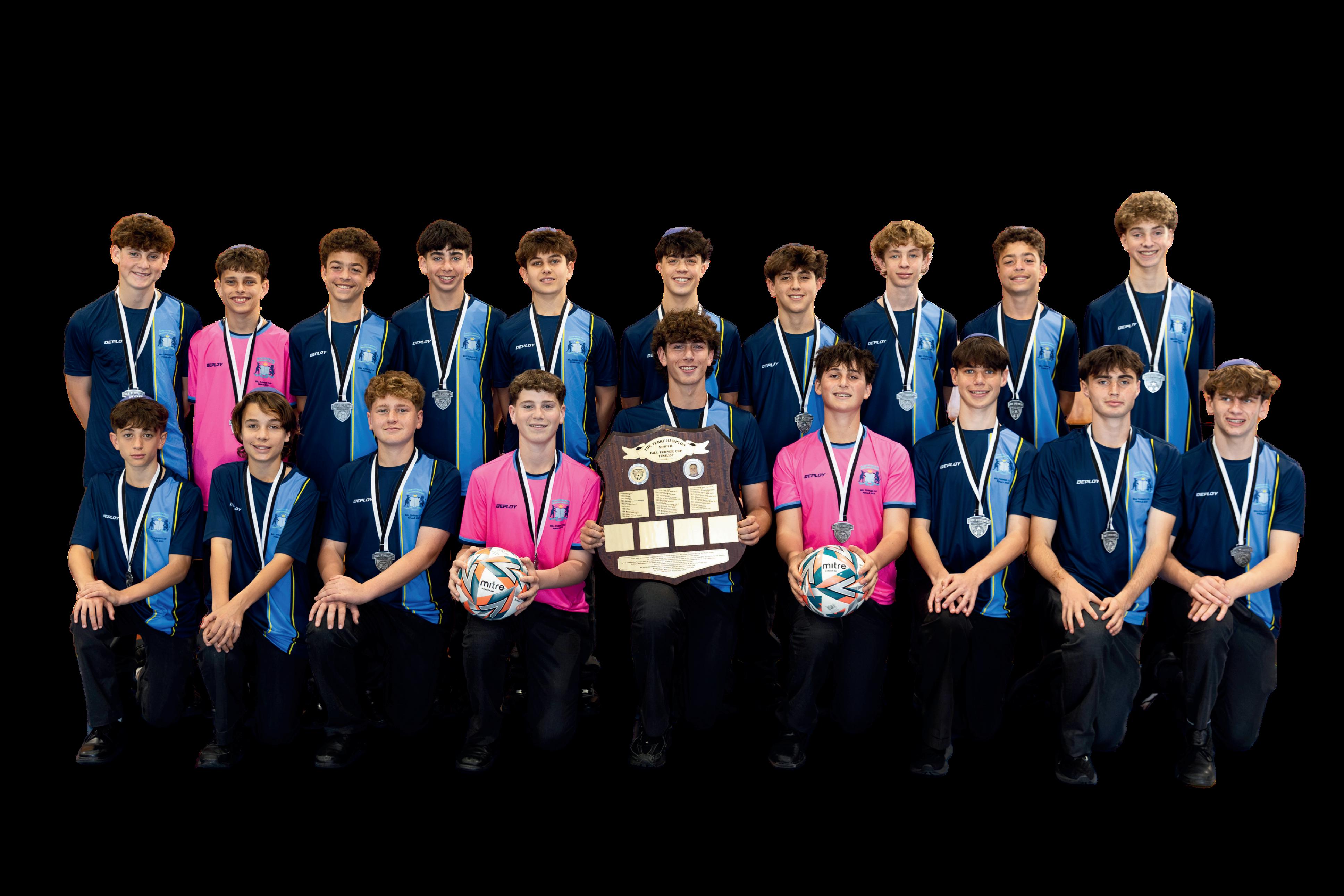


MORIAH HAS SECURED ITS PLACE AMONG AUSTRALIA’S TOP FOOTBALLING SCHOOLS, FINISHING 2ND IN THE PRESTIGIOUS BILL TURNER CUP. COMPETING AGAINST 850 TEAMS FROM FOUR STATES, OUR BOYS SHOWED THE TEAMWORK, DETERMINATION, AND PURSUIT OF EXCELLENCE THAT DEFINE OUR COLLEGE, ETCHING MORIAH’S NAME INTO AUSTRALIAN SCHOOLS’ FOOTBALL HISTORY.
DR DVIR ABRAMOVICH CONSIDERED OPINION
There are decisions that look bold in the moment but hollow out trust for generations. Australia’s recognition of a Palestinian state is one of them. And sometimes history tests us not with abstractions, but with choices that cut straight to the bone. Last week, the Albanese government chose to formally acknowledge a Palestinian state. On paper, it sounds like a diplomatic gesture, one more step in the longdiscussed two-state solution. In reality, it is something far more troubling. It signals that the lessons of October 7 are already fading, that terrorism can yield political rewards, and that Jewish lives can again be treated as expendable.
Australia’s leaders framed their announcement as an act of peacebuilding. They spoke of ceasefires and reconstruction, of reform within the Palestinian Authority, of the possibility of a brighter horizon. But here is the truth: recognition granted under fire, before Hamas has been dismantled, is not a bridge to stability. It is a reward for savagery. It tells every extremist group in the Middle East and beyond that violence pays, that the fastest path to legitimacy runs through massacres and kidnappings.
The U.S. Congress has already warned that such moves coincide with spikes in antisemitism. Why? Because extremists read them as vindication. If Hamas can boast that its slaughter triggered international recognition, its supporters feel emboldened to lash out elsewhere. When governments validate aggression with statehood, the consequences filter down into schoolyards, universities and workplaces, where ordinary Jews pay the price. The chants at rallies grow louder. The graffiti spreads. The intimidation grows bolder. Recognition doesn’t calm the waters; it churns them. It gives license to those who already believe Jews are fair game. Australia’s step will not make the streets of Gaza safer, but it will make the streets of Melbourne and Sydney feel more precarious for Jewish families who only want to live in peace.
For Jews here and around the world, last week’s announcement is devastating. It tells us that the massacre of 1,200 Israelis is already being treated as a footnote rather than a turning point. It tells us that the anguish of hostages’ families is already being pushed aside, that their loved ones still trapped in Gaza’s tunnels do not weigh heavily enough to delay the handing out of diplomatic prizes. And it tells us that the vow of “Never Again”, invoked so often in the days after the atrocity, has already been compromised. If the murder of Jews can be followed so swiftly by recognition for those aligned with the killers, what meaning does “Never Again” still hold?
One of the most basic objections is legal and practical: Palestine does not meet the accepted criteria of statehood. Under international law, a state must have defined borders, a single functioning government and control over its territory. None of this exists. The
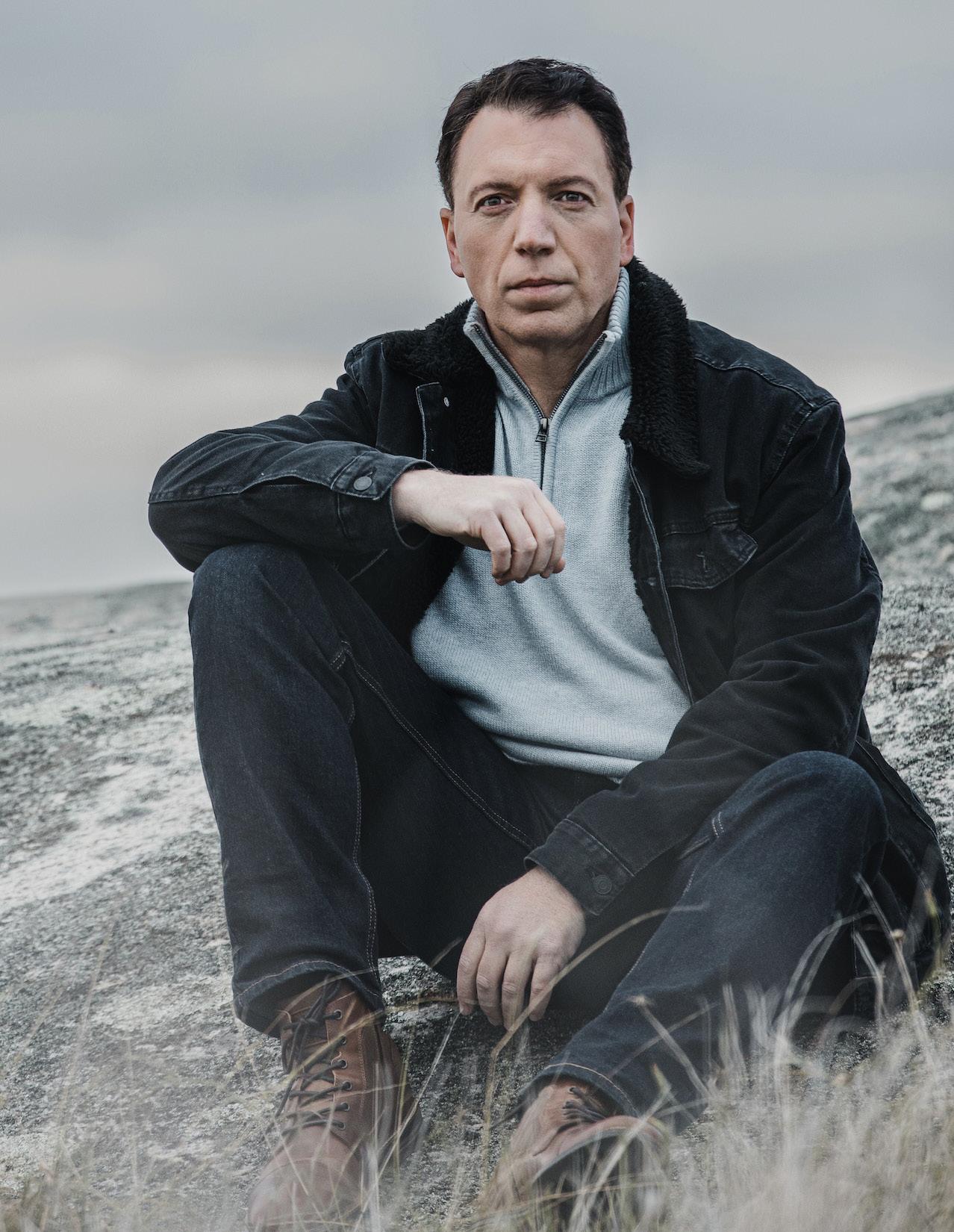
Palestinian Authority is weak, elections are decades overdue, and Hamas rules Gaza as a rival regime. Iran-backed militias and terror groups operate freely in the West Bank. To recognise a state under such conditions is not to reward peace or governance, but chaos.
Security concerns are equally stark. Gaza was once held up as the testing ground for Palestinian self-rule. Israel’s withdrawal in 2005 was supposed to give Palestinians a chance to prove that autonomy could bring prosperity and coexistence. Instead, Hamas built a vast tunnel network, imported Iranian rockets and turned the enclave into a launchpad for October 7. The West Bank sits on the hills overlooking Israel’s heartland, where 70 percent of the population and 80 percent of its economy are concentrated. A Palestinian state there, under current conditions, would put Israel’s airport, highways and schools within easy range of mortars. To pretend that this is a recipe for peace is to ignore every lesson of recent history.
Israel’s critics will say: but what about Oslo? Wasn’t the whole point a gradual path to statehood? Exactly. The Oslo framework was built on the principle of negotiation, step by step, confidencebuilding, security first. Recognition now is not an extension of Oslo. It is an abandonment of it. It skips the hard
compromises and declares a final result without any of the responsibilities.
Australia prides itself on fairness, on mateship, on standing by its allies in hard times. This decision betrays those ideals. It tells Israelis that their deepest wounds are negotiable, that the slaughter of their citizens can be bracketed off as tragic but irrelevant. It tells Jewish Australians that their safety is an afterthought. And it tells terrorists everywhere that they can murder, kidnap and still see their political goals advanced.
Supporters of recognition argue that it will strengthen moderates, that it will plant seeds for democracy and undercut Hamas’s influence. But history suggests otherwise. Gaza was once hailed as the first step toward Palestinian sovereignty. Israel withdrew, tearing thousands of its own citizens from their homes in the name of coexistence.
Within two years Hamas had seized control, turned the enclave into a fortress of tunnels and rockets, and used its de facto sovereignty not for peace, but for war. The result was October 7. To repeat that experiment in the West Bank would not be a gamble. It would be national suicide.
And there is the moral dimension. To recognise a Palestinian state now is, in effect, to ratify the logic of October 7.
Even Palestinian surveys show that a
majority still support the “resistance” that brought the world’s attention at such a gruesome cost. Hamas itself has openly claimed credit for the wave of recognitions in 2024-25, boasting that without its massacre, the world would not have moved. By treating this moment as the time to grant statehood, Western nations send a message that bloodshed accelerates diplomacy. It is not only Israelis who will hear that message. Jihadists and extremists everywhere will take note that slaughter can pay political dividends.
This is not just about geopolitics. It is about the moral order we choose to inhabit. Do we want to live in a world where the murder of innocents can be followed by the granting of a flag, an anthem and a seat at the table? Do we want to teach our children that terrorism brings results? Because that is the lesson many will take from last week.
Politics is not only about borders and treaties. It is about what we reward and what we punish. If we legitimise terrorism, we will get more of it. If we validate rejectionism, we will see more rejection. If we bypass negotiation, we erode the very possibility of compromise. Recognition may look like a shortcut to peace, but in truth it is a detour into greater conflict.
Australia is a nation that has long stood for decency, courage and solidarity with friends under attack. That is the Australia Jewish Australians thought they knew. Many are now wondering if that bond still holds. Recognition may win applause at the United Nations. But at home it leaves a minority community feeling more isolated, more vulnerable, more betrayed than at any time in recent memory.
History is filled with decisions that seemed pragmatic in the moment but proved ruinous because they mistook illusion for reality. The decision to recognise a Palestinian state in 2025 is one of those. It is not a step toward reconciliation. It is a dead end.
Peace will come one day to Israelis and Palestinians. But it will not come by rewarding Hamas. It will not come by declaring a state that cannot govern itself or control its own extremists. And it will not come by turning a blind eye to Jewish suffering. If “Never Again” is to mean anything, it must mean that violence is punished, not rewarded and that terror is condemned, not legitimised. There is still time for clarity. True peace will only come when Palestinian leaders reject violence not with words but with deeds, when they build institutions of accountability, when they prepare their people for coexistence rather than martyrdom. Until then, recognition is not diplomacy. It is a dangerous illusion.
Dr Dvir Abramovich is chair of the AntiDefamation Commission and the author of eight books.
AB BOSKANY
Mediation is not a rite. It is the drawing of boundaries that violence may not cross and the making of a door through which the abducted can come home. When a movement anoints the killing of civilians as virtue, conversation that does not bind it to law risks becoming the velvet curtain for the same old execution. The first measure of any “process” is simple: are the captives seen, named and returned alive and whole?
If mediation is to deserve the word, it must demand proof rather than promises. That means an explicit renunciation of attacks on the defenceless, an acceptance that the other has the right to live in peace, and a disarmament plan supervised so closely that pretence has nowhere to hide. Without these terms, negotiation is not the tempering of fury, but its intermission. It is a ceasefire of conscience for one side and a reload for the other.
Hamas does not present itself as a council of local complaints. It is a theological project that writes the glory of death into its scripture.
To seat such a creed at a table as if it were merely a party of grievance is to confuse doctrine with disappointment. Legitimacy would begin with the unconditional release of every hostage, a public and unambiguous rejection of sanctified murder, recognition of Israel’s right to exist in peace, and disarmament under inspection that leaves no shadowed rooms. Anything less is costume.
The price paid in prisoner exchanges exposes a moral ledger of unusual cruelty. Compassion urges that no cost is too high to save a life. Prudence knows that indiscriminate releases advertise kidnapping as a thriving market. Some exchanges will still be necessary, but they must sit inside a design that reduces the incentive for the next abduction. Tragedy has its own arithmetic. It is not a licence for foolishness.
There is a second ledger, written in the quiet omissions of broadcasters and podcasters. The recurring failure to state these terms plainly is not innocent. It is a dividend on cheques already cashed, the soft focus purchased by the money of monarchs in the Persian Gulf.
After the Israeli strike that targeted Hamas figures in Doha, the capital of panel discussions and scented neutrality, the theatre briefly lost its scenery. Here is the moment to repay rented dignity: speak without invoice and call deeds by their names, rather than by their sponsors.
The point returns to where it must: the hostages first and the civilians who could be next. Politics earns its purpose only when it is the guardian of their safety. Mediation has honour only when it compels zealotry to answer to the law, with terms that are visible, verified and enforced. Anything less is theatre for the sponsors and a signal to the kidnappers. Name it peace if you wish; history will know it as surrender.
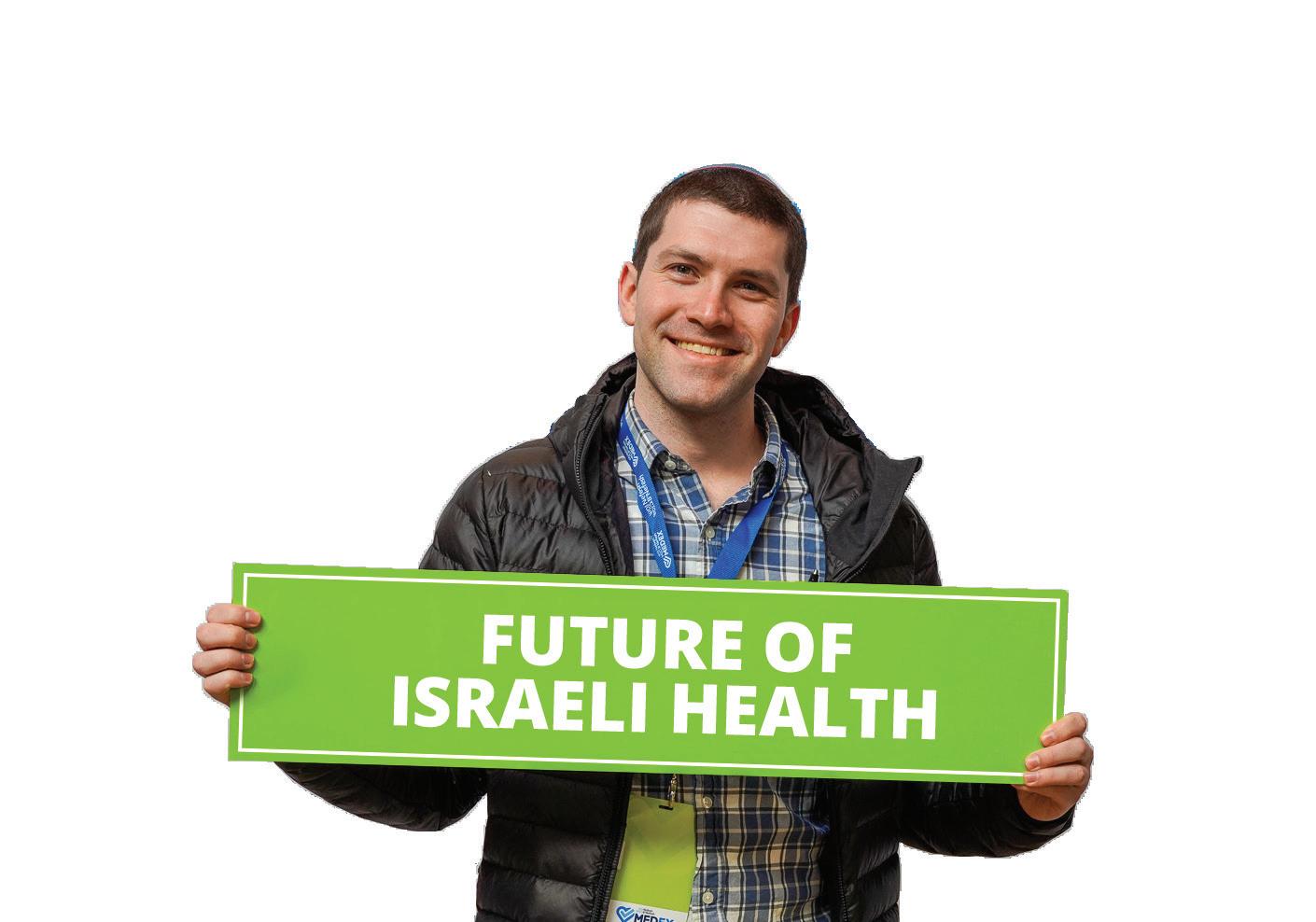
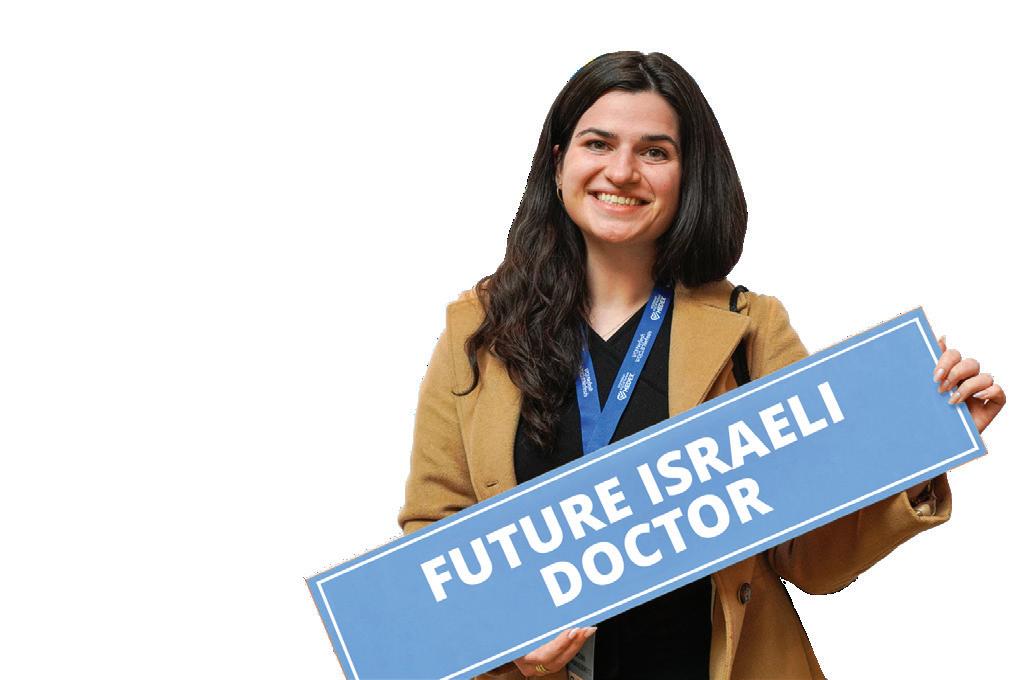
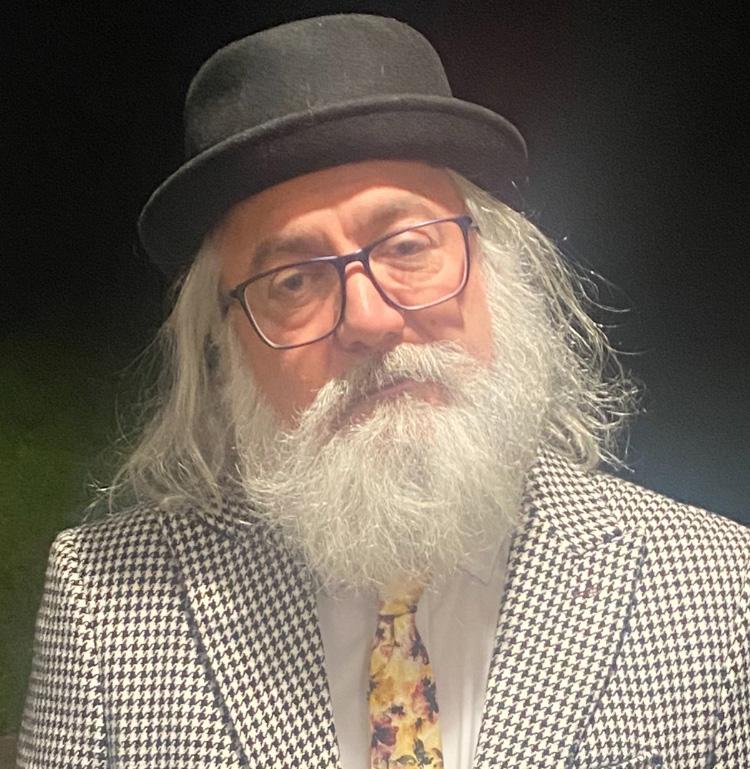
















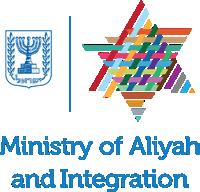

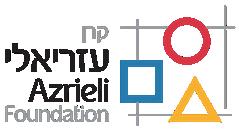

DAVID SCHULBERG
Israeli prime minister Benjamin Netanyahu is despised by so many people around the world and is a very divisive figure in Israel. Mordechai Nisan, a retired lecturer from the Hebrew University of Jerusalem, believes that Netanyahu has been unjustly excoriated. Mordechai also taught at BarIlan University, the Open University and the pre-army Lachish Academy at Beit Guvrin. Among his books are Minorities in the Middle East, Toward a New Israel, The Crack-Up of the Israeli Left, The Conscience of Lebanon and Identity and Civilization. David Schulberg discussed with him his essay, The War Against Netanyahu, which was recently published in the New English Review.
David:
Why were you especially motivated to write a long essay about what you describe as a war that's been mounted against him?
Mordechai:
My impression is that there's quite a onesided presentation of Netanyahu in the world and, to a degree, also in Israel. The media, the Left, academia and the like are lined up against him. And, therefore, I felt a certain obligation, as a person who likes to present the other side, to inform people that they shouldn't be caught in the clutches of a one-sided, monolithic presentation. I was motivated to reveal what I think most Israelis believe.
David:
Do you consider the vilification of Netanyahu and the charges that have been laid against him as a manifestation of the Left's hatred of him?
Mordechai:
This is a very important question, which touches on the foundation of legality. With charges that have been leveled against Netanyahu in a trial which is now five years old, and while he's prime minister conducting war on seven fronts, and the country's existence is kind of in the balance, he has been compelled to attend judicial hearings. He is on the witness stand, charged with crimes like
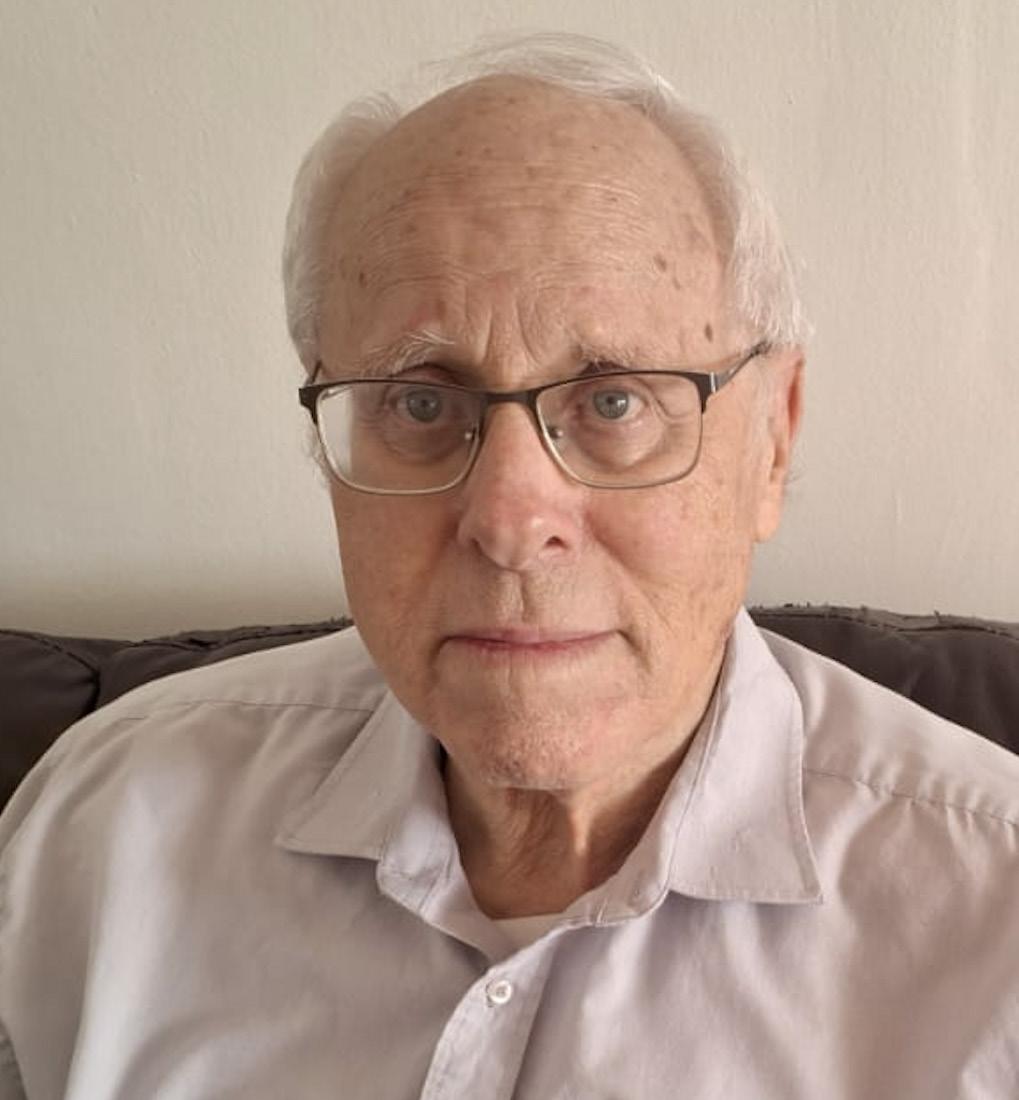
engaging in inaccessible gift-taking in terms of his influence on press coverage of him, bribery and the like. The noteworthy lawyer Alan Dershowitz has said in no country would anybody be charged for ‘manufactured’ crimes like the ones that are leveled against Netanyahu.
For example, the charge that he bribed the owners of a newspaper to get better political coverage. Bribery it’s not. It's just conversations, whereby politicians try and elicit better public coverage for themselves as a way that politics is conducted in normal democratic countries. Where is the crime in trying to influence the coverage of himself in a leading newspaper? Or the other charge that he received gifts, considered to be bribery from friends.
You can receive gifts. It doesn't mean you're being bribed. It means that you have a certain relationship with your benefactor.
These charges are very thin and unsubstantiated. And yet they have been leveled against him by the attorney general's office, the chief prosecutor, and they're now being dealt with in court. There are very many Israelis who consider this merely the use of legal mechanisms to demonise him, to bring him down.
Likud has been in power for many years, with Netanyahu the prime minister most of that time, longer than any other previous prime minister, including (David) Ben-
Gurion. It's as if the Left, unable to defeat him at the ballot box, is trying to weaken and expose him for crimes he didn't commit, to bring him down politically.
David:
I've seen the film The Bibi Files, which can’t be seen in Israel. It cannot be legally shown in Israel because of privacy laws, but I know that a lot of Israelis are very interested in it. It reflects a lot on what you've written.
Mordechai:
I would watch it if I had access to watching it. I'm not sure, with all due humility, that I would hear something that I'm not familiar with, because the charges against Netanyahu, the very demonisation of Netanyahu, have been a theme publicly for five years and, of course, with a background that goes back to when he entered politics in the 1990s. It's hard to understand how, in a functioning democracy with a multi-party system, these kinds of nefarious charges are being leveled against a man who has been serving his country loyally for decades. It's hard to appreciate the fact that he’s been charged with undermining democracy when there's not a shred of evidence that he has undermined democracy.
He's just trying to function within the framework and limits of what the democratic form of government permits. There's a sense for many Israelis that all of this is detached from reality.
While it's hard for people abroad to appreciate this, it's really the sense of things here. It's unpleasant often to present Israel in a negative light in the eyes of Jews and other people. But again, my purpose in writing the essay was to, indeed, present the situation in Israel as it is, even though I would like to draw the picture in glowing colors. On this issue of the war against Netanyahu I feel there's really no alternative but to tell things as they are. It opens a window of understanding and interpretation, which I think most people abroad do not appreciate.
David:
Let’s shift focus to the upheaval that was taking place in Israel at the beginning of 2023, with the judicial reform agenda. You wrote in your essay, “The citizens elected the Knesset, the Knesset voted
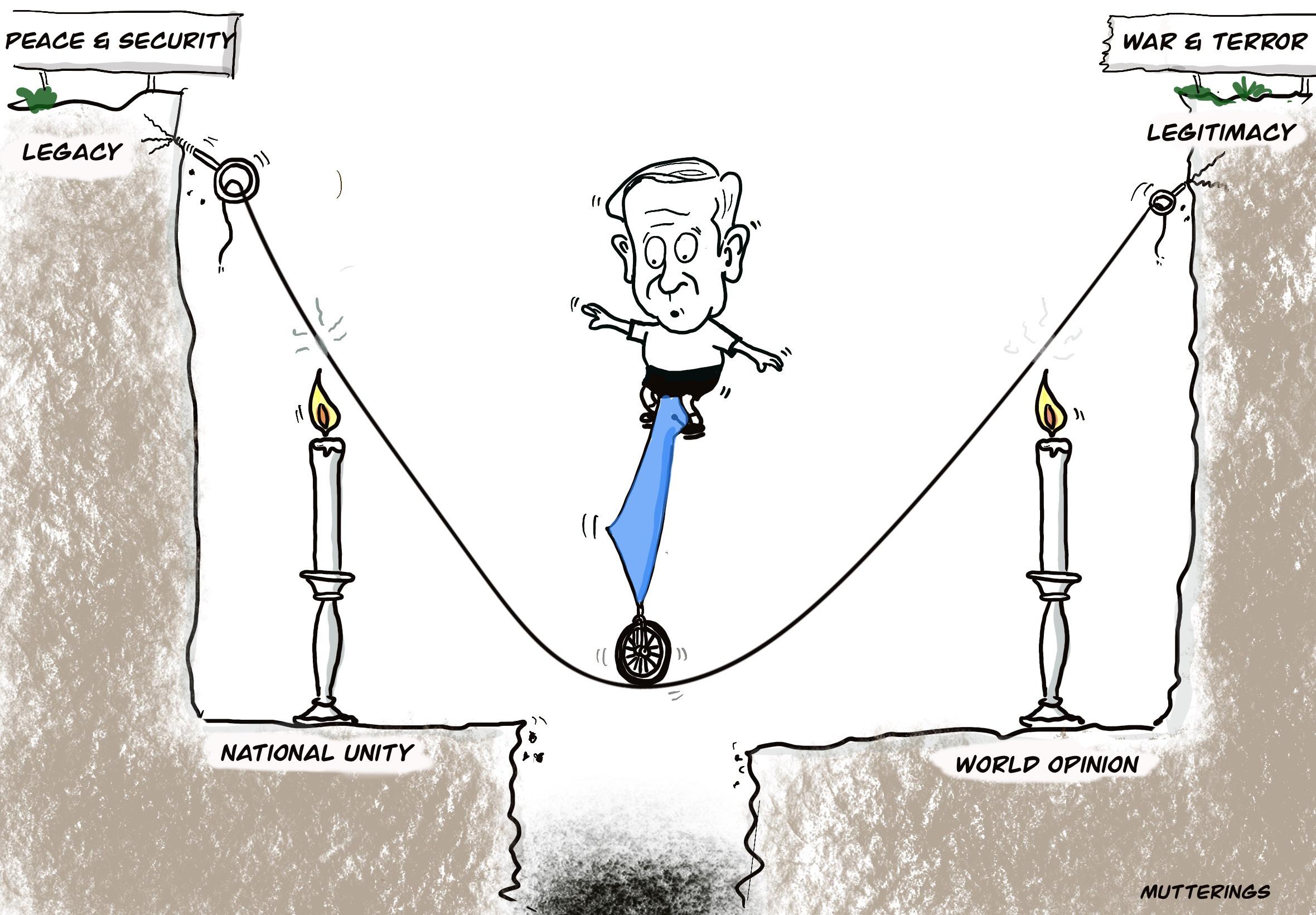
confidence in the government and then the court gagged the government and sent the people adrift in the uncharted waters of political chaos.”
You also said, “The Left insisted that judges are politically detached and objective professionals who do not succumb to their personal views, perhaps angels in human form. Then this, “The Supreme Court unhinged Israel from its national ethos while replacing the Knesset as the highest authority in Israel.”
Do you blame the Left for putting Israel into a vulnerable position by distracting the government from national security?
Mordechai:
This political weakness of the Left, unable to defeat Netanyahu, Likud and the national camp, has sent them into a frenzy, which explains their desire, therefore, to try anything to bring down the government, not at the ballot box but on the street.
The purpose of the judicial reform package from the Netanyahu government at the beginning of 2023 was to introduce some balance between the three authorities – the Knesset, the government and the judiciary.
It’s been the case that for many decades the judiciary has arrogated itself powers to determine government policies, decisions, Knesset laws and the like. For example, we have had a problem in Israel for many decades of illegals from Africa who entered the country and acquired residency status.
They've caused enormous problems, committing crimes to the detriment of native Israelis. The government decided it would encourage them to leave the country. Like what is discussed today in European countries regarding Muslims who have arrived in droves. Netanyahu wanted to take care of that problem by encouraging the illegals to return to their African countries. The court blocked these measures.
They said, 'No, these people have a right to be here. They have a right to benefit from social privileges and therefore you cannot expel them or even encourage them to leave.
The members of the court are decided by a small judicial selection committee, which is dominated by the justices of the court themselves, meaning serving justices on the Supreme Court participate in the vote for new judges.
This is nepotism, meaning they bring their own kind, those that share their outlook, to become new members of the court. It's like a closed club. One of the proposals of the judicial reform package was to change the mode of electing or choosing justices to the Supreme Court to give it more balance and pluralism. The Left decided, “no” – we are in control and we don't want to abandon our control of this lever of power. Hence, they decided that the judicial reform package had to be opposed. And that led to the violent anarchic protests in the streets of Israel beginning in 2023, until October 6th, the day before the brutal attack against Israeli communities in the northern Negev.
This is a slightly modified extract from a long interview with Mordechai Nisan, who was interviewed by David Schulberg on ‘The Israel Connexion’ program on J-AIR Community Radio.
Please note that the views expressed by Mordechai Nisan are simply his take on the situation and are not intended to reflect those of David Schulberg or this newspaper.
MAUREEN BARTEN PRESIDENT PJV
Recently, PJV joined more than 150 Jewish leaders from around Australia at the Zionist Federation of Australia Plenary Conference in Sydney. It was wonderful to walk into a room filled with representatives from across the spectrum of Australian Jewry. There were youth movements, state councils, funders, synagogues, political affiliates and advocacy groups – Progressive, Orthodox, and everything in between. This was a day unified by purpose and committed to collaboration. While we don’t always agree, we all showed up, side by side, to share our thoughts and see where our values aligned.
ZFA President Jeremy Leibler opened with a call to “hold the centre”. He reminded us that true Zionism means “holding multiple truths at once, defining our story on our own terms (not through the lens of antisemitism) and turning purpose into practice together.”
Throughout the day we heard from friends in government and opposition. Health Minister Mark Butler MP spoke of his long-standing friendship with Israel and our community, while Shadow
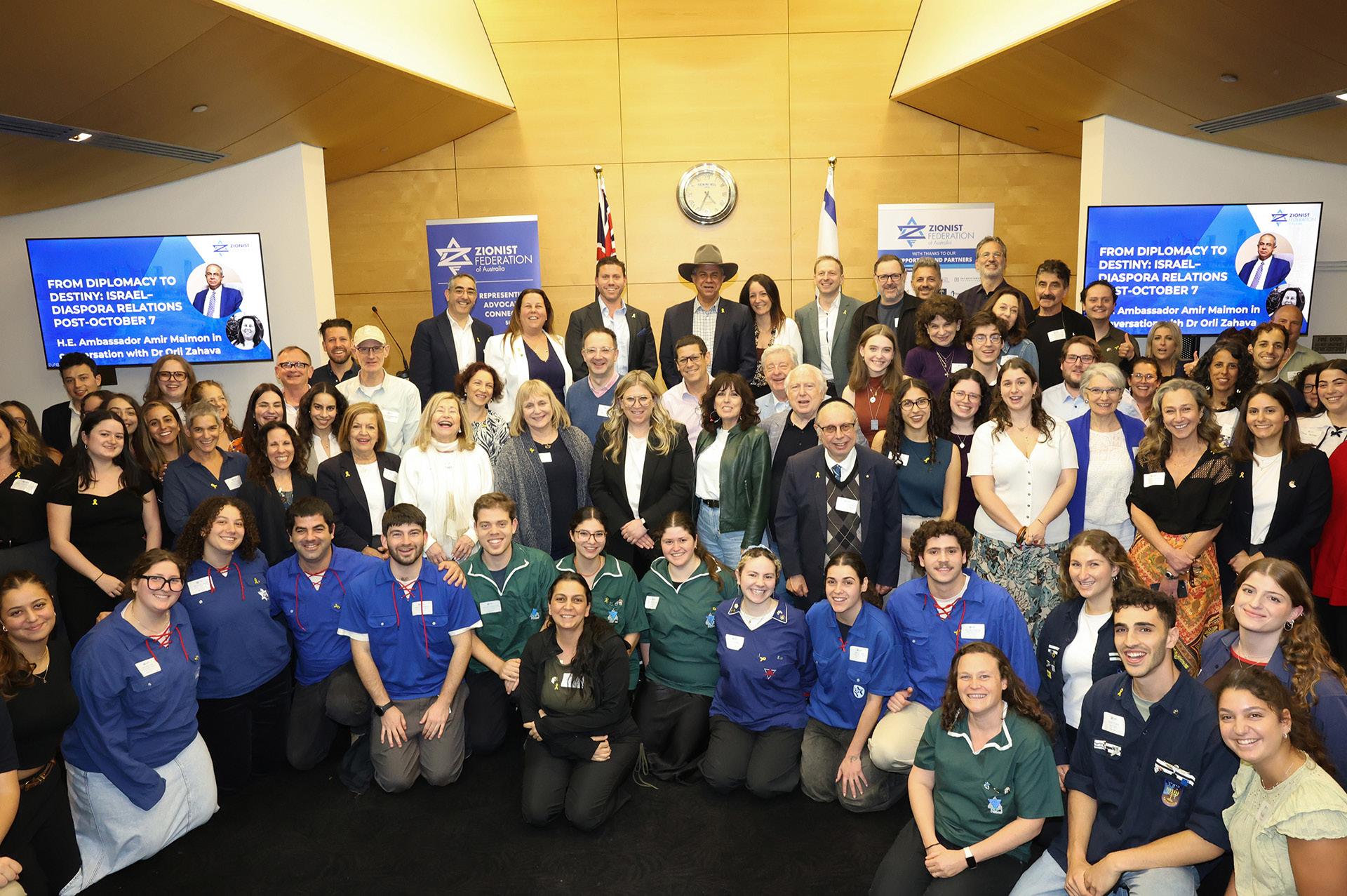
Attorney-General Julian Leeser MP urged us to proudly reclaim the word “Zionist” and to “stand tall and to thank those who stand with us.”
Dr Yoaz Hendel – former Minister, journalist and founder of the Reservists movement, shared his remarkable story of October 7, describing the mobilisation of Israeli society, fuelling the urgency for a “living Zionism” today.
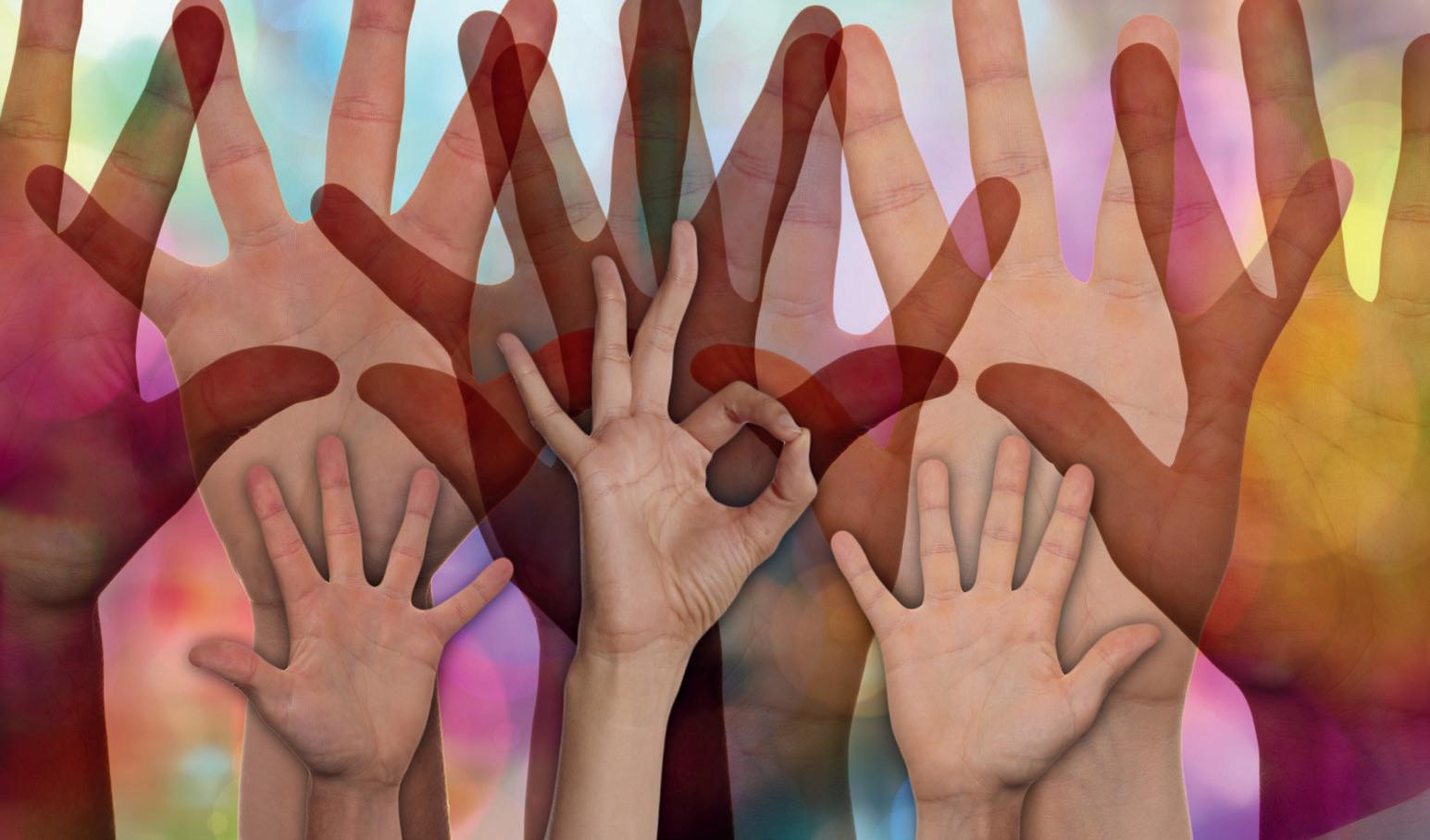
Led by Professor Gil Troy, we worked in groups to begin rearticulating what Zionism means in today’s environment. His words “Antisemitism does not make the Jew; the Jew makes the Jew” emphasised the importance of defining Zionism in our terms, “broadening the tent” and preserving diversity, while remaining united in purpose. Lillian Kline moderated a panel discussion with Elyse Schachna,
President of Zionism Victora, Dr Yoaz Hendel, Danny Tischmann, Co-President of AUJS and Natalie Sanandaji, October 7 survivor and Public Affairs Officer at the Combat Antisemitism Movement. Their shared message was clear: Zionism must be practiced as inclusive, pluralistic and alive in daily life.
As his posting to Australia draws to a close, Ambassador Amir Maimon joined Dr Orli Zahava, President of ZCNSW, for a wide-ranging conversation. Ambassador Maimon has been a source of great strength and a good friend to our community.
He was presented with a iconic Australian gift – an Akubra Hat – stylishly modelled in the accompanying photo.
The ZFA Conference provided time for listening, reflecting and reconnecting. It demonstrated the strength of our community when it is inclusive and when we commit to turning words into action.
The clear takeaway is that Zionism in 2025 must be unapologetic and lived. The diversity of voices in that room proved that, even with our differences, we can stand together – many voices, one people and one shared purpose.
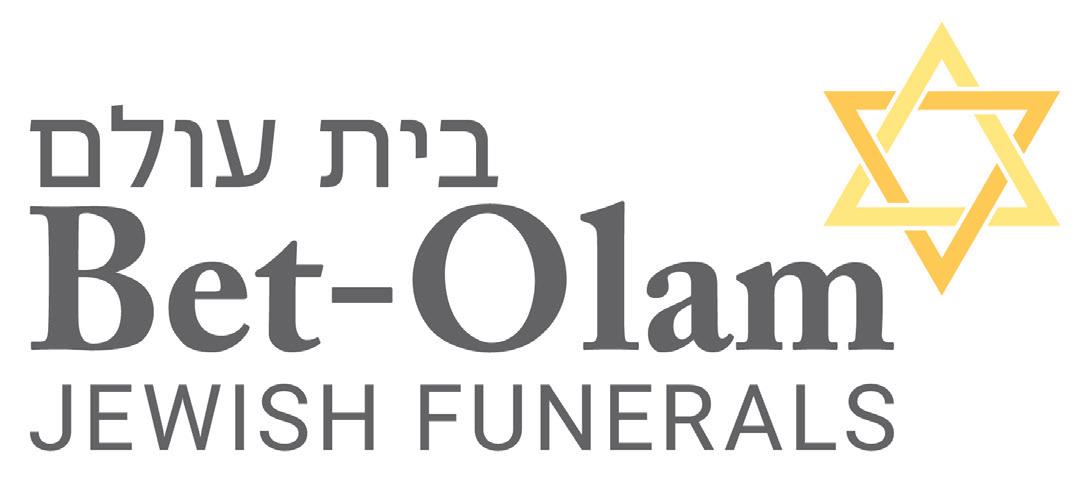

“ The wound of grief is the price we pay for love ”
Rabbi Lord Jonathan Sacks
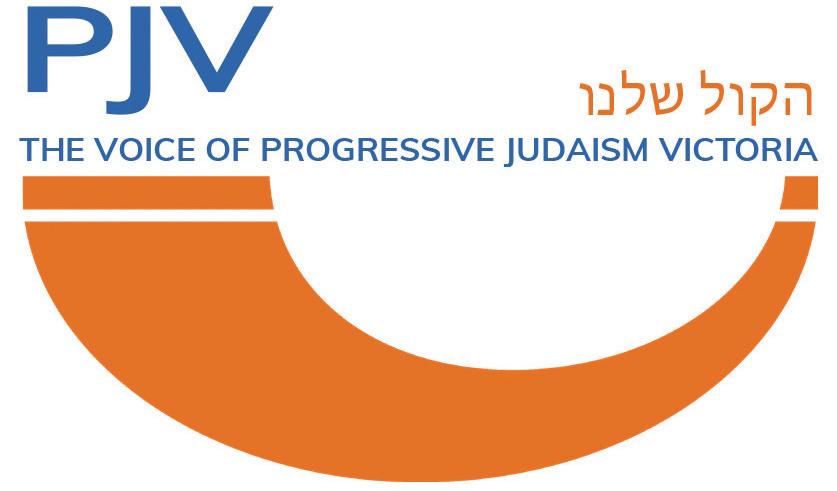
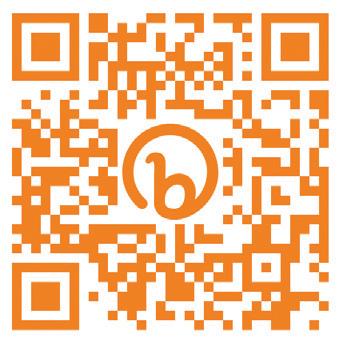
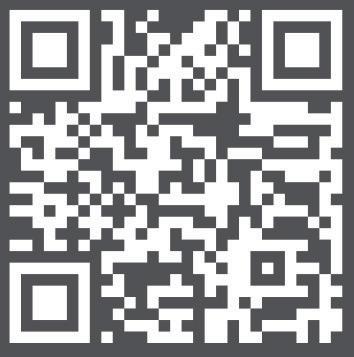
RAMONA FREEDMAN
ALIYAH
ADVENTURES
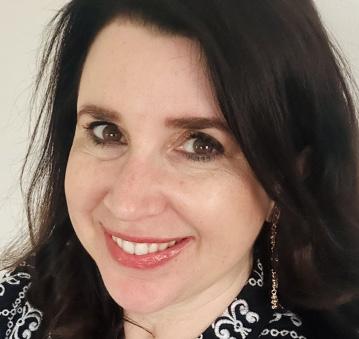
In these complicated times, you might think that Israelis shudder to hear words like ‘war’, ‘enemies’, ‘incoming missiles’ and the like. Intriguingly, one Hebrew word strikes deeper than all – it is: shiputz. When translated into English, it simply means, renovation. Typically, a home renovation.
As little as a year ago, I hadn’t even heard the word. Now, not only do I know the meaning, I am living through one. A few months ago, we were fortunate to buy a home about a block away from our special shul, Kehillat Lev Ra’anana (KLR). Initially, we thought we might touch it up here and there. Well, that is not how it panned out.
In Australia, at least in my experience, when you vacate your premises, there is an unwritten social rule that you leave it as tidy as humanly possible. Not in Israel. In the roof cavity, alone, I was told there was one tonne of dusty rubbish to remove. In the mamad (the bomb shelter), there were … disturbing droppings. On it went. After feeling nomadic for about a year and half, we were so excited to know we would finally have our own home again that we waved away these ‘inconveniences’ and passionately threw ourselves into this new endeavour.
As it is so hot in Ra’anana, especially through the scorching summer, adequate air conditioning is essential. The previous owner had somehow illegally added to the allotted ‘electricity load’ of the house. We were told that, as a result, it was dangerous and needed urgent attention. A few hundred shekels here, a few thousand shekels there. Other surprises followed.
As proud as I am of my efforts in my ulpan class learning Hebrew, I knew that there was simply no way I could source and then liaise with the rough and ready Israeli contractors and builders to right the wrongs.
In what can only be described as a blessed encounter, one Shabbat while fressing (eating) at the generous KLR weekly, post service kiddush, I met Emilie the architect. Originally French, she is a huge talent, who helpfully speaks three languages – French, English and Hebrew – fluently. The bonus is that she now oversees the ‘Igors’.
This is not a secret code word. They are the four men – all named Igor – currently working on the house. Thankfully, she knows which one is supposed to be doing what. Two Igors are from Russia and the other two are from Ukraine. All chat in Russian.
It turns out there are no real safety measures on an Israeli home building site. Somehow (hopefully most) not only survive, but thrive. Recently, I arrived with a ridiculously heavy box in the boot of my car. Ukrainian Igor #1, a giant who lumbered out without a top, a t-shirt wrapped around his head and barely any shorts, was there to assist. In basic Hebrew,
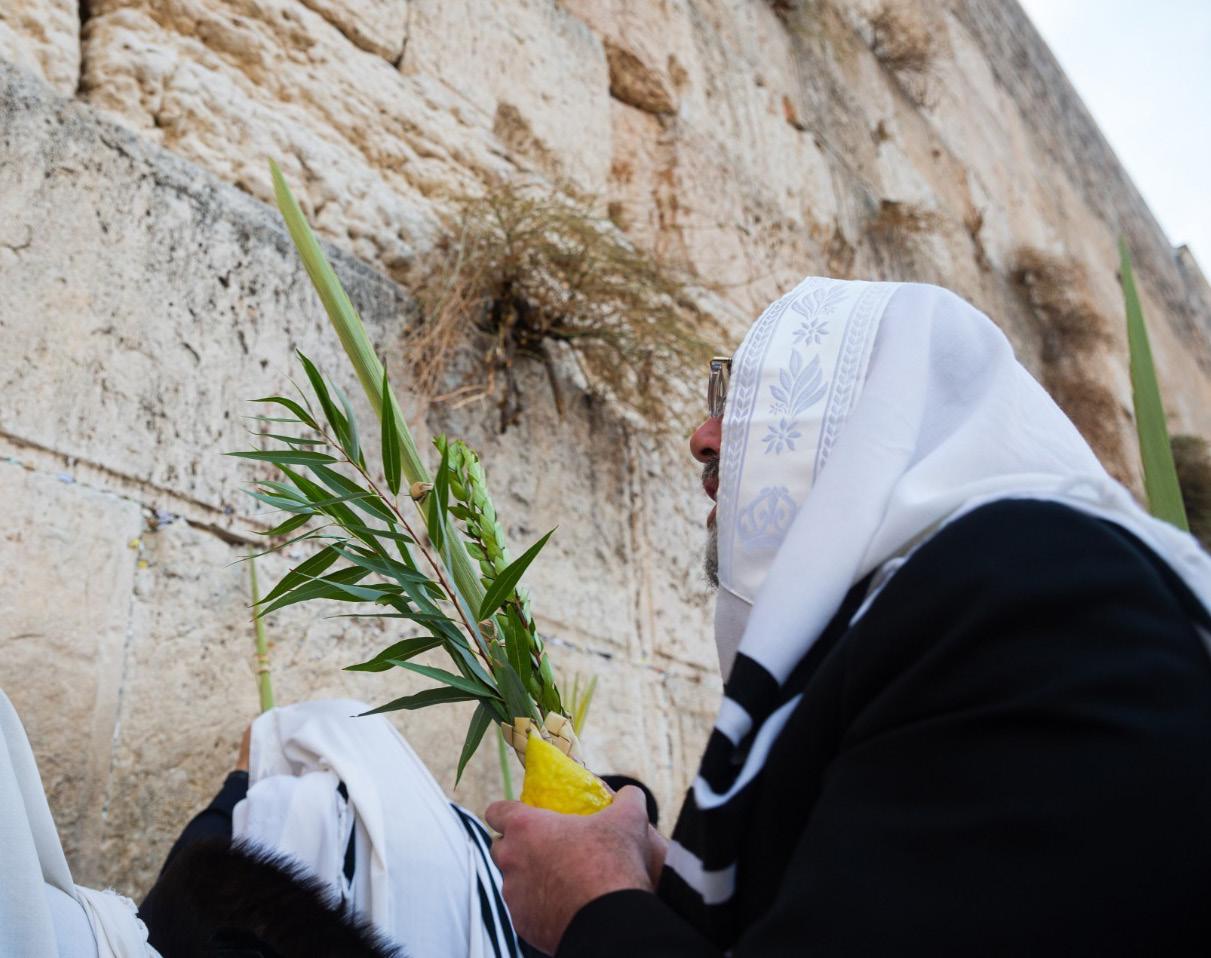
attempted to thank him for all he was doing. With no teeth, he smiled back at me.
I couldn’t help but reflect on the incredible stories I had heard from new olim from many parts of the world, each befriended during my ulpan semester. Arriving in Israel was a victorious moment for all.
Back to the house. The allocated moving in date was ludicrously fixed for the day before Yom Kippur. Yet, two delivery timelines could not be met: we were told there would be no beds and no doors. I paused, digested this nugget of news and then said, “surely a front door must be an essential at a bare minimum?”
The reply: “this is Israel – they may come, they may not!”
Here in the holy land, there is a very long summer holiday break from June to the end of August. The first day of September arrives with national fanfare and there is so much talk of all and sundry heading back to school and work. At last, thank heavens, they all say. I quietly agree that rhythm and routine are paramount in one’s week. Quicker than you can say “appledipped-in-honey”, the High Holidays arrive on our lunar calendar soon after and they are celebrated in different ways by all. Unusually, as soon as society winds up, it winds back down again. Yes, that includes all building projects. You have to shake your head and laugh simultaneously.
At a minimum, all this drama and change affords everyone wild and wacky stories to add even more vibrancy to the Shabbat table each week – simply reflecting on the mad week that was.
I am such an Aussie at heart that I have purchased a giant, fine-art photo print of
Bondi Beach to hang in my new home and I know it will bring me joy every day. First, I have to get it framed.
I am sure that will be an adventure in and of itself.
Word on the street is that our renovation is going better than expected. Given I am half Sephardi and a little superstitious, I will say no more about this and will report back only once my ‘shiputz’ (renovation) is over.
Speaking of my Australian nature, I really must toughen up. Recently, I was parked behind a large truck, which was unloading a supermarket delivery.
Long story short, there was a minor collision that involved damage to my car and none to the truck. I got out of the car to see what had happened – the truck driver had been illegally parked and lowered a metallic lever at the truck’s rear. This then smashed into my car.
We are all taught that when there is an accident, details are exchanged, number plates are recorded and then the insurance ‘fun’ begins. Well, I was a little thrown because the truck driver began yelling at me in Hebrew. He then swore and gesticulated in Arabic.
I was so shocked and flustered I fell on my metaphorical sword, somehow apologised in basic Hebrew (for what I still don’t know) and didn’t get any contact information at all.
That day I didn’t even know the Hebrew word for ‘insurance’, let alone know how to make a claim. One step at a time … one thing I have learnt over this first year here, for every story about someone who makes life difficult, there are a hundred tales on the flip side, which encompass good, positive deeds and actions.
Weddings here in Israel are so joyous, I am always so honoured to be present at one. I consider it such a privilege.
A few days ago, I was sitting next to a lady at one chupah and we started chatting. Her tears were tumbling. I quietly thought she must be a close relation to the bride and groom. She told me that she did care for the sweet, young couple, but her tears were falling for a different reason. They fell unchecked because her only son (who was sitting at the next table) was serving in a combat unit in the Israeli army and was being deployed to Gaza the following morning. She added, “Don’t get me wrong, I am simultaneously so happy for this dear couple to marry safely in Israel.” By that point I was crying too … for the couple, for all army parents, for her and for her only son!
Once upon a time for Israelis, when you mentioned Australia, top of mind was the land with the cute kangaroos and cuddly koalas.
Australia is blessed to have its native fauna, yet nowadays, without exception, when Israelis hear that I am Australian, they immediately talk about the challenges Australian Jews are facing as a result of increased antisemitism. It is covered extensively here across all media. Many here wonder if more Australian Jews are planning to buy property in Israel as a precaution, or planning to make Aliyah?
As an Israeli (okay, grateful dual citizen), I don’t have all the answers, yet I do think an urgent ‘shiputz’ is needed when it comes to Australia’s management of allthings-Israel.
For now, it is over and out from Ramona in Ra’anana. Chag Sameach!
CARLI DVASH UIA
Returning to Israel after a decade, I was expecting the wave of memories and emotions that hit me as soon as the plane touched down. I also knew this trip would carry a different weight post October 7, as the team that I am proudly a part of at UIA Australia had worked so hard to mobilise the Australian community to send unprecedented support to Israelis in their darkest hour. Yet, nothing prepared me for what I experienced over the fortnight I just spent in my homeland.
From the moment we landed, as I walked down the path of faces and stickers at Ben Gurion airport wearing my “Bring them Home” t-shirt, I immediately felt the deep scars of a nation still reeling. From there, with every day and every experience we encountered, ordinary Israelis shared their unique stories of loss, fear and sleepless nights. The word “heartbreaking” is so often used, but it doesn’t even come close.
Yet, at every UIA-supported project –from at-risk youth at our Youth Villages and Youth Futures programs to trauma support centres, from meeting new olim in absorption centres to Holocaust survivors at Amigour Sheltered Housing – we were met with authentic gratitude so profound it stopped us in our tracks. People thanked us not only for our financial support, but for simply coming. For showing up. They told us it meant everything that Jews from around the world would leave the safety of their homes to stand with them in a war zone.
This gratitude came from everywhere … from every speaker we heard from. Even in taxis we heard that the support from Australian Jewry is not an abstract idea. It is the reason they can get up in the morning, the reason they know they are not alone. They also want to make sure we know we are not alone either, as they also continuously made sure to ask how we are doing here in Australia – how we are coping with the rising tide of antisemitism that they see on their news each night. Humbling and frightening all at once.
The mission also showed us the strength of Israeli society itself. In Majdal Shams, parents of 12-yearold Tia who survived the Hezbollah rocket attack, but was critically wounded thanked us for helping in the immediate aftermath through our Victims of Terror Fund. Through tears, Tia’s mother shared that they never
felt alone because of our support, which in turn allows her to support her daughter, who is not only still physically and mentally suffering, but who is also dealing with her best friend dying in her arms that Saturday morning. As we stood at the impact site, starring at the beautiful faces of the 12 children murdered, a deep sense of emotion and pride overcame me. These are the feelings that I carried throughout the mission. Across the country, from the Golan to the Gaza envelope, we met people whose lives had been shattered, but whose spirit cannot be broken.
One of my fellow participants summed it up perfectly when he said, “Israelis are broken, yet unbreakable.”
That struck me as the absolute truth of this moment. We witnessed it in the courage of young soldiers, in the determination of new immigrants and in the resolve of families rebuilding homes and hearts – shattered and broken – yet, defiantly, unbreakable.
This journey also reminded me of our shared responsibility, which I feel lucky enough to live every day at work. However, even for me, it is one thing 17 years.
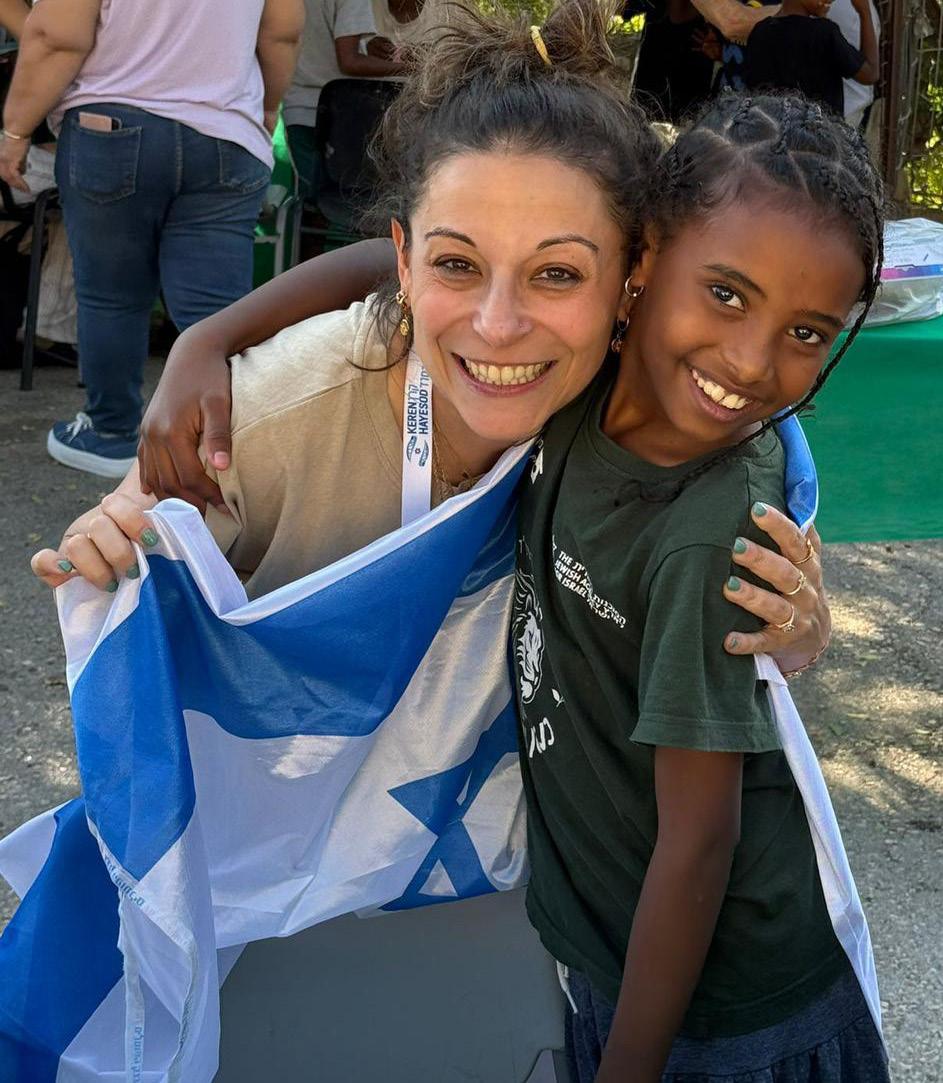
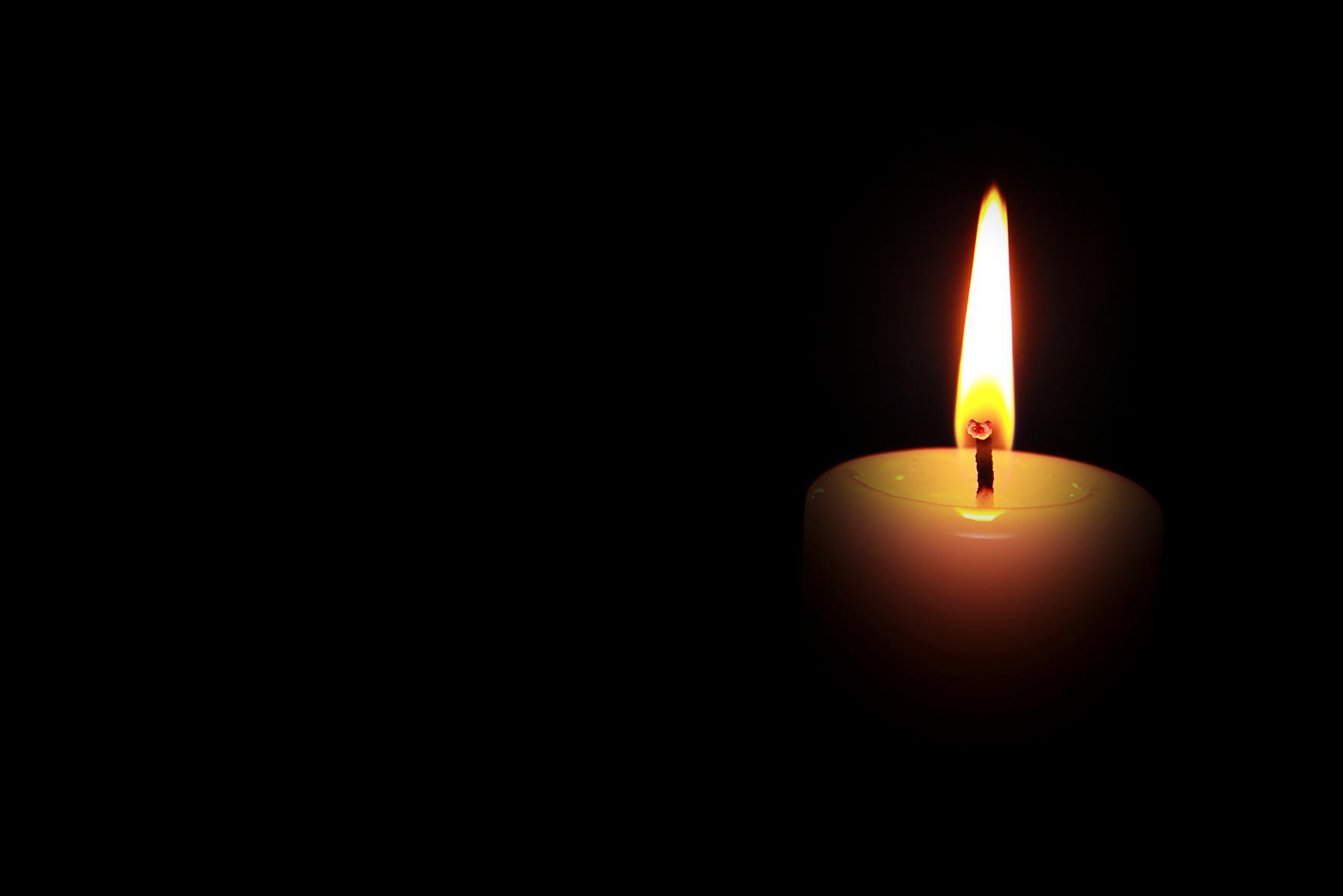
Since October 7, you have continued to support the People of Israel through UIA in an unprecedented way;
For newborn babies whose start in life was disrupted
For vulnerable children who have been traumatised
For at risk teens who seek direction back to their path
For our family spread across the globe an unbreakable connection to one another
For our newest Olim seeking refuge in their homeland
For the Victims of Terror in the depths of their trauma
For entire communities rebuilding what has been lost
For those who have served us
it’s our chance to serve them
For our eldest survivors safety and dignity till the end
For the People of Israel in every generation
For Life.
UIA collectively prays for the safe return of our hostages, our soldiers and peace for Am Yisrael We remember all the innocent souls who have lost their lives

The King David School Year 6-9 students recently delighted audiences by performing the much-loved musical SpongeBob SquarePants.
The themes of teamwork and friendship were reminders that when challenges feel overwhelming, we are
stronger when we are united and listen to one another.
Designer and alumnus Rylee Sack embodied the spirit of sustainability, repurposing found objects in the set, props and costumes.
So, just as the citizens of Bikini Bottom, featured in the musical, adapt and rebuild, Rylee too showed how creativity can help care for our planet.
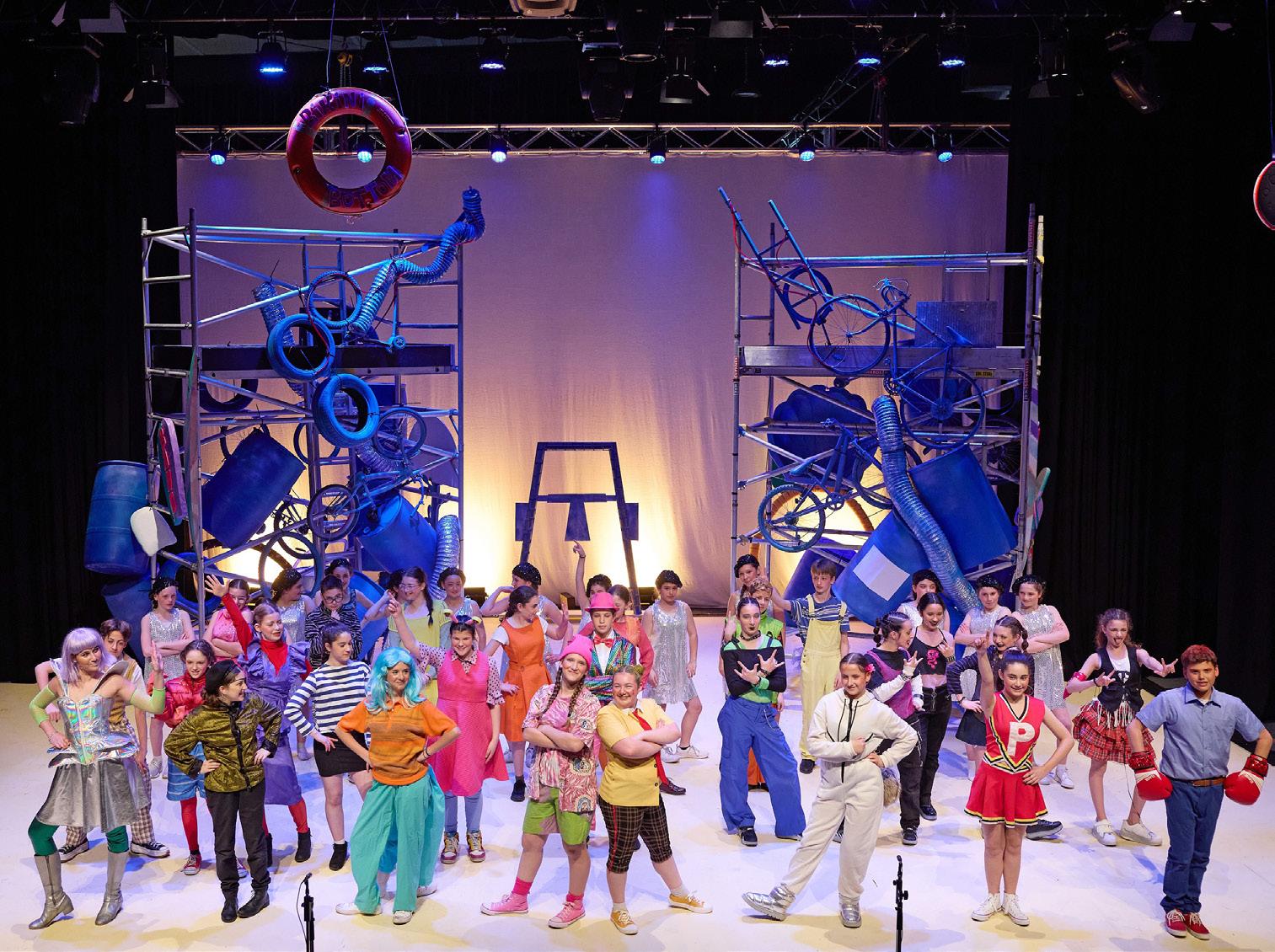
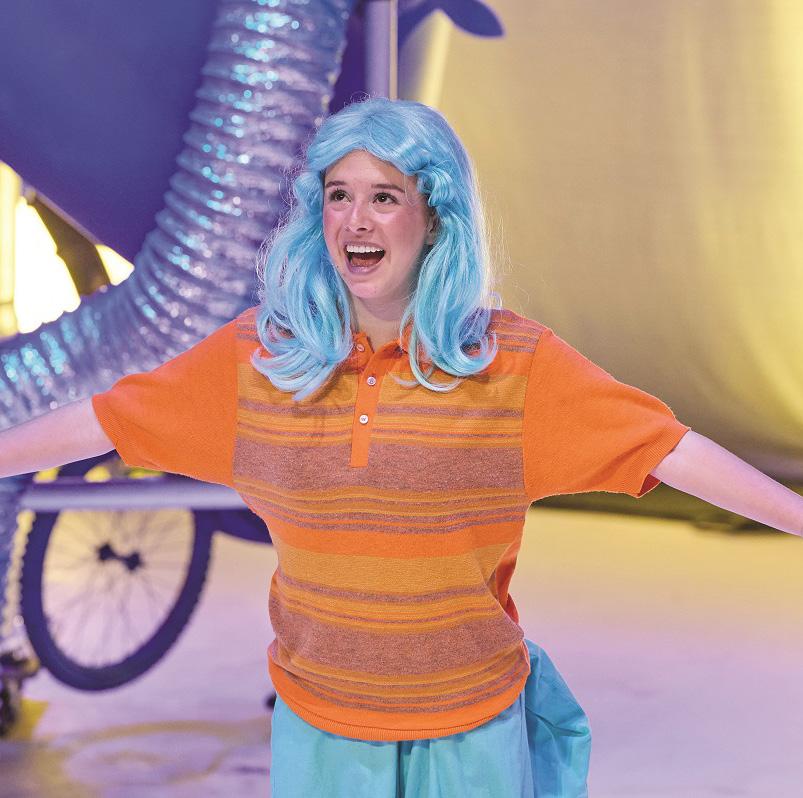
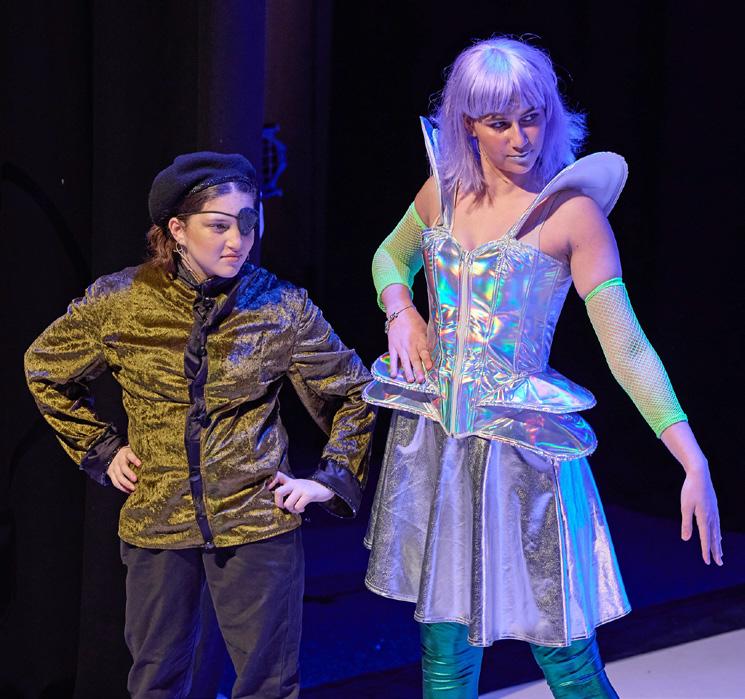
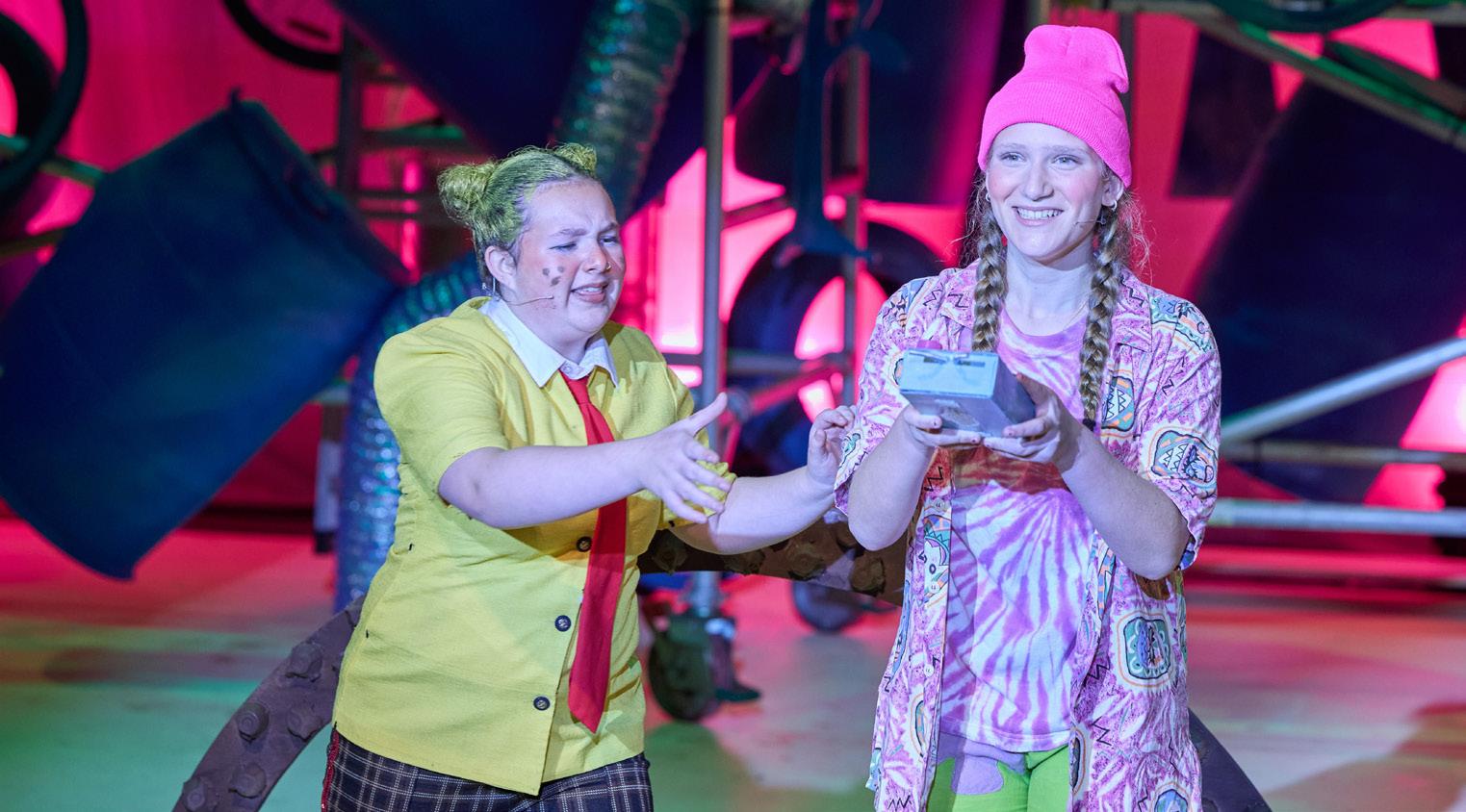
Trade in your unwanted gold and diamond jewellery for cash or a new design.



How many common words of five or more letters can you spell using the letters in the hive? Every answer must use the centre letter at least once. Letters may be reused in a word. At least one Jewish word will use all seven letters.
Proper names and hyphenated words are not allowed. Score one point for each answer and three points for a Jewish related word that uses all seven letters.
Rating: 16 = Good; 19 = Excellent; 24 = Genius
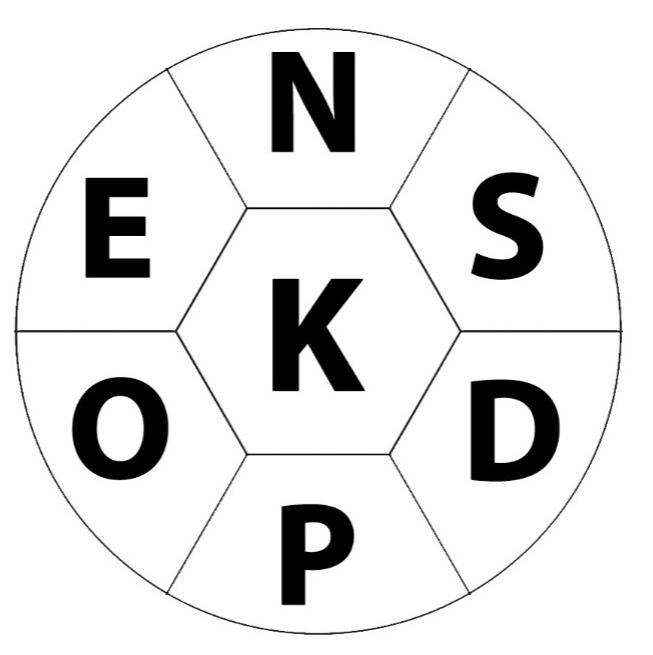
has published more than 1,000 crossword puzzles worldwide, from the LA
to The Jerusalem
and Boston
He has also published two Jewish puzzle books: "Kosher Crosswords" and the sequel "More Kosher Crosswords and Word Games".
ANSWERS PAGE 18
MAGEN DAVID ADOM
Magen David Adom’s (MDA) Teddy Bear Hospital Program is a fun, interactive and educational experience designed especially for young children.
The program introduces children to the world of hospitals and medical care in a way that is exciting and reassuring.
It helps them to feel comfortable with medical care in hospitals, while they also learn about the important work of MDA in Israel and around the world.
The program is targeted at children aged from three to six, with workshops carefully tailored to suit those different ages.
Its aim is to familiarise youngsters with hospitals and demystify the fear around receiving treatment.
They are asked to bring along their favourite teddy or soft toy and take on the role of a paramedic treating and caring for them during a medical checkup.
The workshops start with an engaging story about Hershy the MDA teddy bear, who has an adventurous day climbing a tree and meeting new friends.
Hershy has an accident and is taken to hospital in an MDA ambulance, where
he receives great medical attention. After hearing Hershy’s story, the children go into action and take part in the triage process.
They learn how to weigh and measure their teddy, listen to a heartbeat, practice bandaging and even pretend to administer medicine.
Each activity is hands on and age appropriate, allowing children to build confidence while enjoying themselves.
MDA provides each child with a paramedic jacket, stethoscope, bandages, medical records, x-ray printouts, scales, measuring tape and syringes.
At the end of the workshop, each child receives a personalised MDA certificate and a special gift pack to take home, giving them a lasting memory of their day as a paramedic.
The Teddy Bear Hospital Program can be run in schools, kindergartens, early learning centres or at the MDA head office, making it flexible and accessible for everyone.
Through play and storytelling, MDA helps children develop valuable life skills, reducing their anxiety about medical care and inspiring them to help others.
For more information, please contact Rachel at info@magendavidadom.com. au
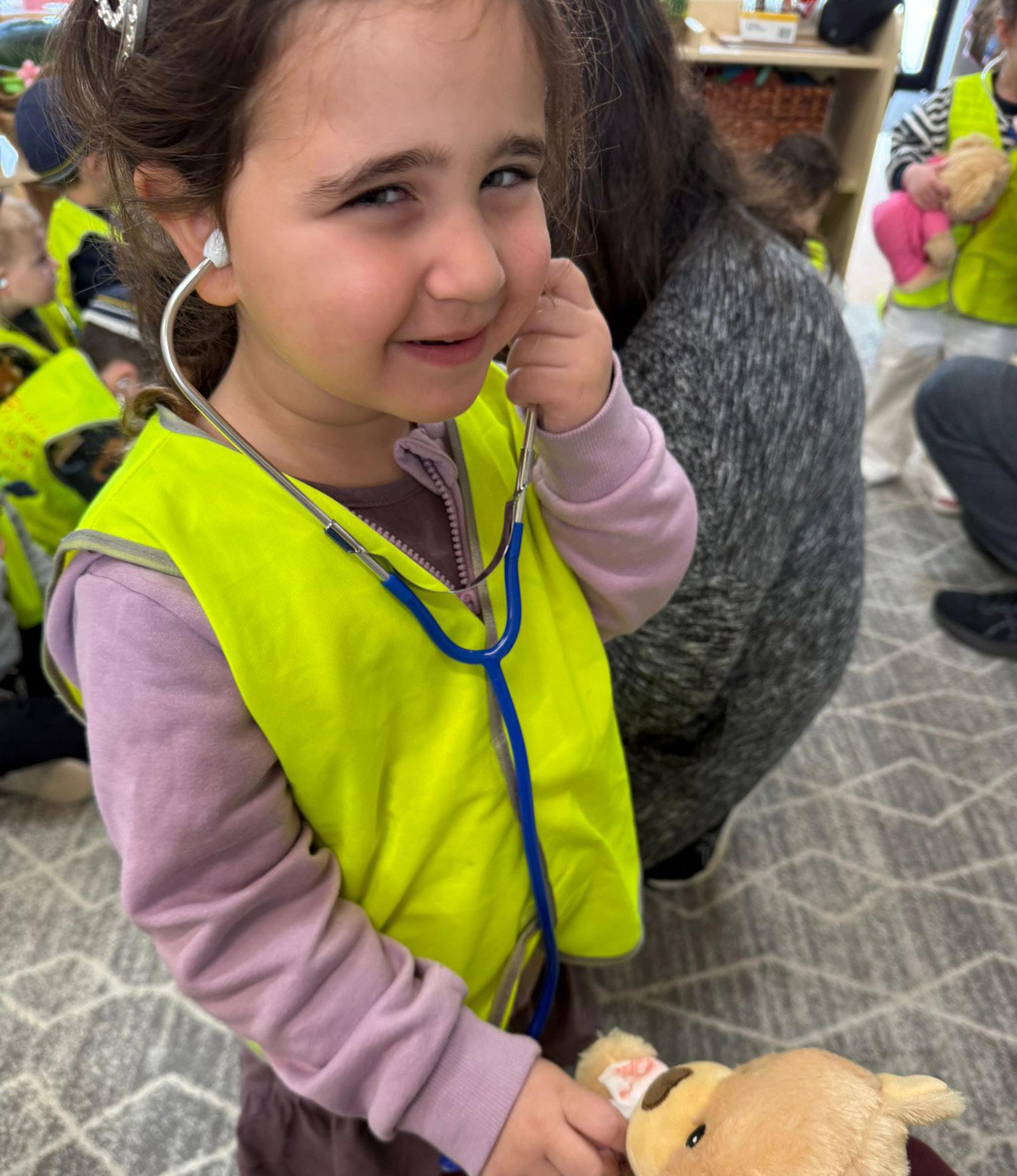
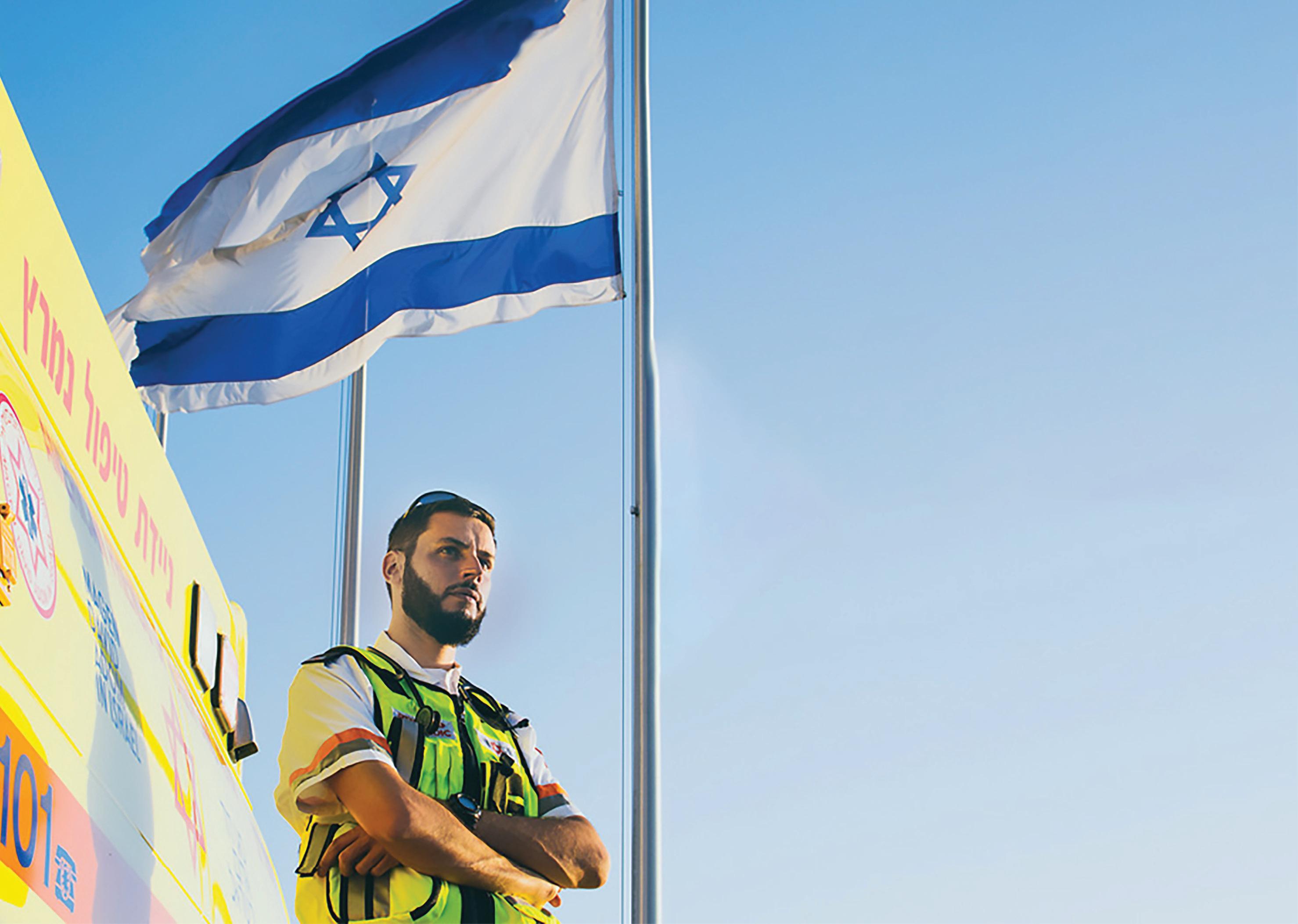
DAVID SOLOMON, CEO AUSTRALIAN FRIENDS OF TEL AVIV UNIVERSITY AROUND THE COMMUNITY
Can a flicker of the eyes reveal what the mind remembers? Researchers at Tel Aviv University believe so. In a groundbreaking study, they’ve developed a method to measure memory without asking a single question, showing that people often recall more than they realise.
This approach could make it possible to assess memory in infants, patients with advanced Alzheimer’s disease, or people recovering from brain injury –groups for whom traditional verbal tests are impossible. “Memory is usually tested by asking questions,” said Dr Flavio Jean Schmidig, who led the study, alongside colleagues at TAU and Tel Aviv Sourasky Medical Center. “But this isn’t possible if someone can’t answer. We wanted to test memory in a more natural, nonverbal way.”
A mouse, a surprise and the power of a glance
The researchers asked 145 healthy volunteers to watch short, animated videos containing surprising events – for example, a mouse suddenly darting across the corner of the screen. When participants watched the same videos a second time, their eyes instinctively shifted toward the place where the surprise would appear – even when they insisted they didn’t remember
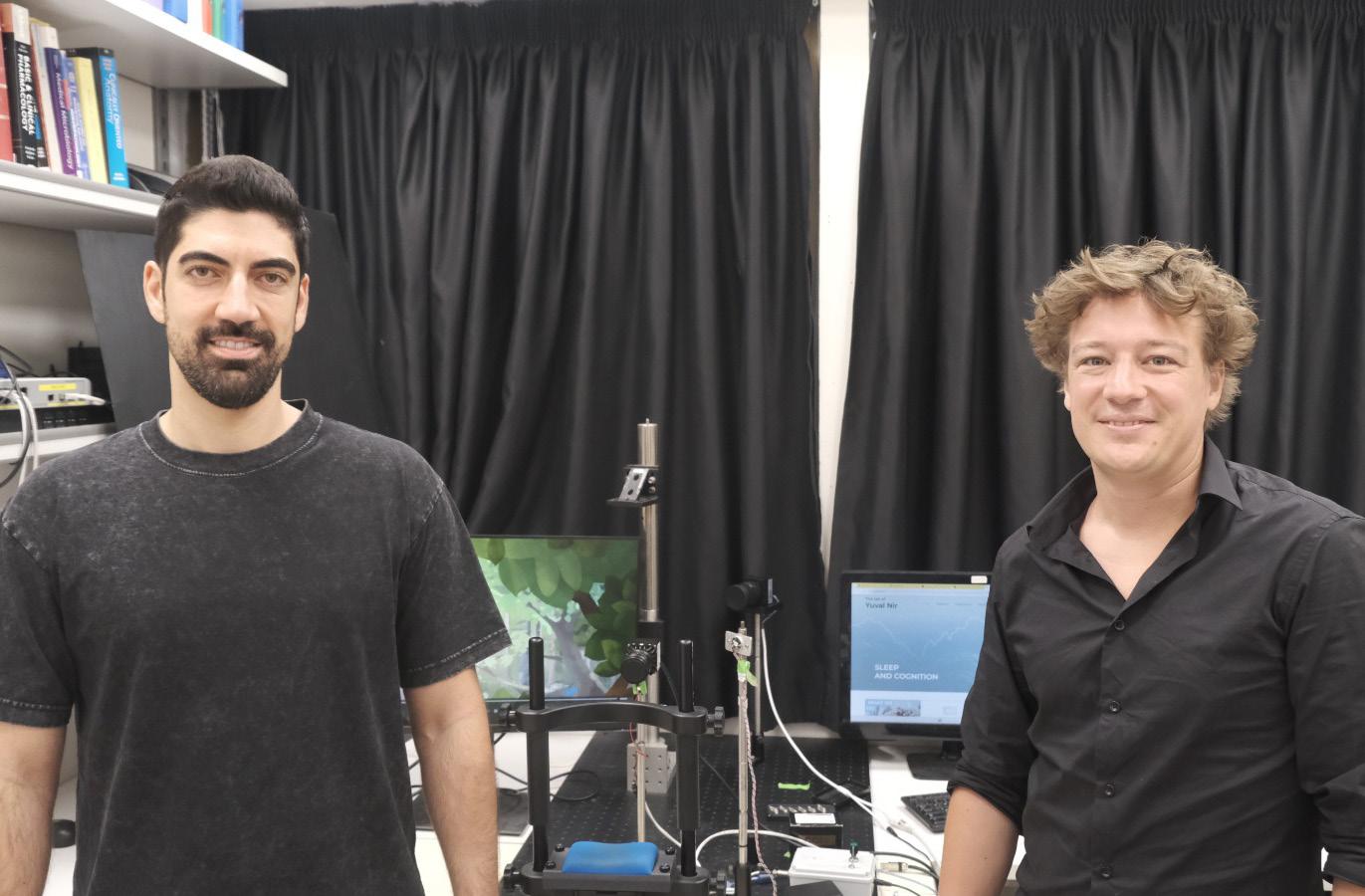
it. By combining gaze tracking with machine learning, the team developed an algorithm that could automatically detect whether someone had formed a memory – often more accurately than the person’s own verbal report.
“Sometimes people do remember, but they can’t put it into words,” said coauthor Daniel Yamin.
“The eyes don’t lie; they reveal hidden layers of memory.”
Dr Omer Sharon said, “When I ask you if you remember, you might say “yes”, “no”, or “I am not sure”.
But subtle shifts in gaze show much finer nuances. Now we have a tool for testing memory in a way that is closer to how it naturally occurs.”
Why words are not enough
Traditional memory tests depend on language, attention and confidence – all of which can be impaired by age, injury or disease. Eye-tracking offers a direct, sensitive measure of memory without requiring speech or explicit answers. Professor Yuval Nir, who supervised the study, highlights the method’s practicality: “Gaze direction can be detected by a standard laptop or smartphone camera as the subject views a video. No large or complex equipment is needed.” The study, published in Communications Psychology, underscores Tel Aviv University’s leadership at the intersection of neuroscience, engineering and artificial intelligence, demonstrating how cuttingedge technology can illuminate the workings of the human brain.
Hidden memories, now visible
Beyond the clinic, the discovery may reshape how scientists think about memory itself. “Our eyes reveal the hidden layers of what the brain has stored,” said Dr Sharon.
For families touched by dementia, for clinicians working with non-verbal patients and for scientists probing the mysteries of memory, that insight could be transformative – offering a new way to understand what has, until now, remained silent.


No matter your stage in life, now is the perfect time to plan for your values to be represented long after you are gone. What do you want your legacy to be?




















Supporting Israel’s greatest natural resource - its people - and contributing to the education of future generations, is one of the most inspiring gifts you can give. It’s a promise today for Israel’s tomorrow.
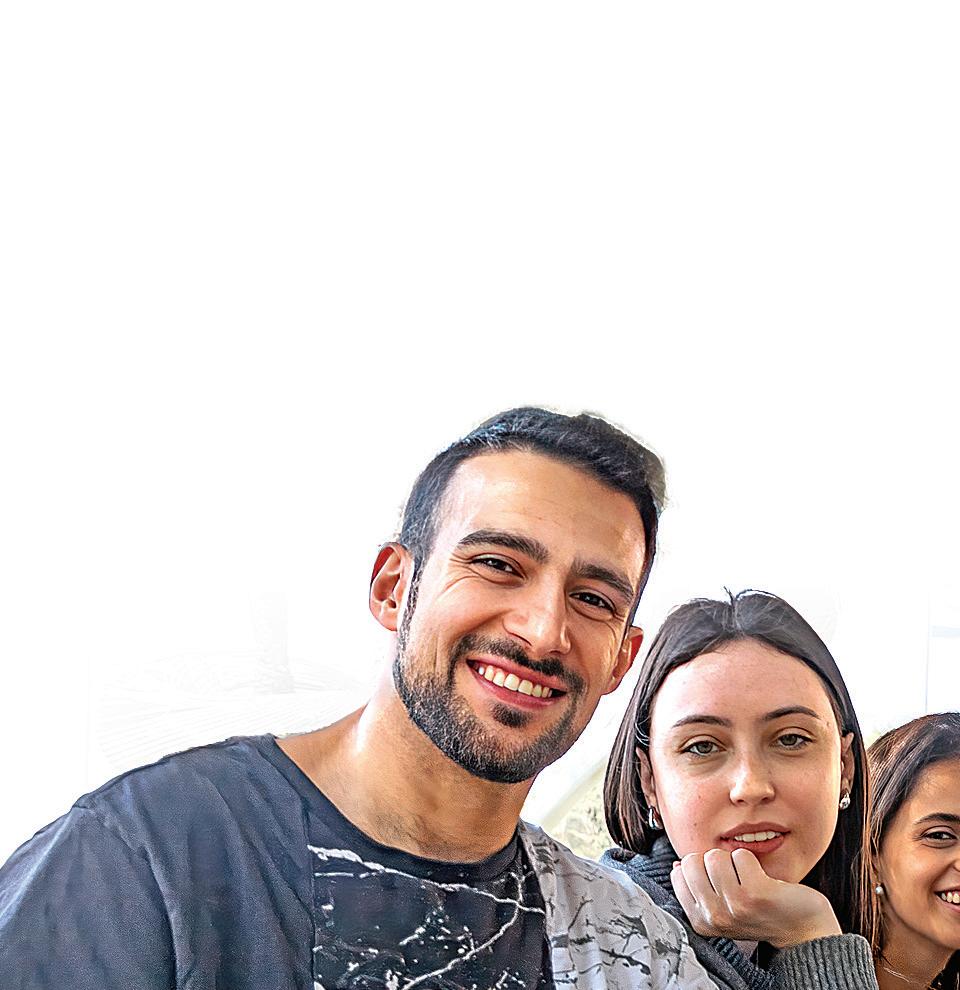
Making a gift in your will to Tel Aviv University will ensure your legacy lives on with Israel, forever.


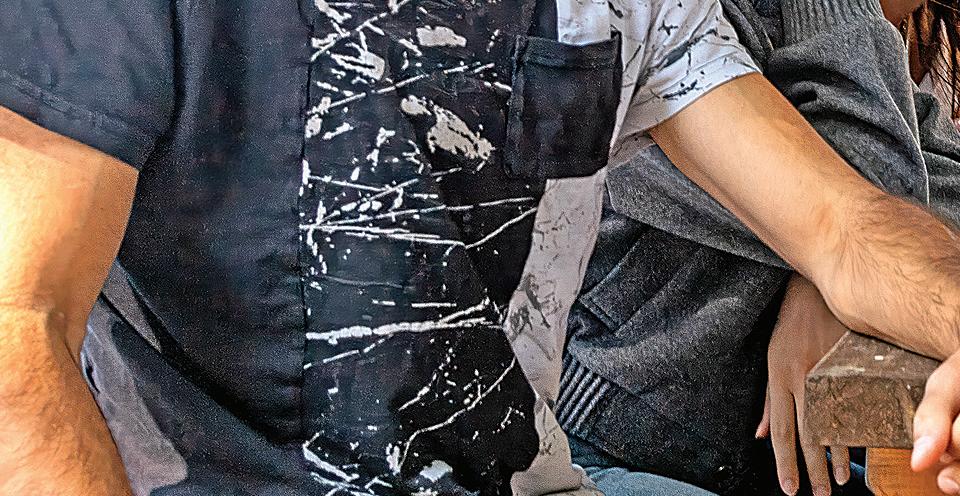
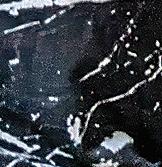

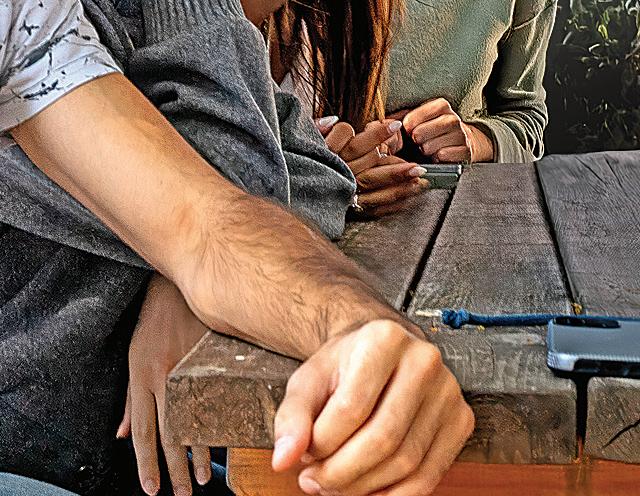
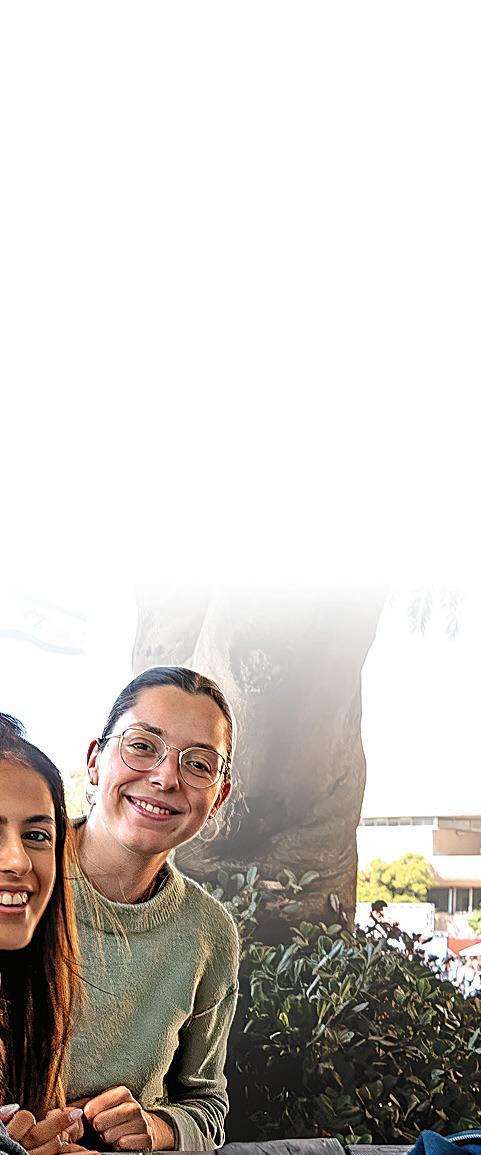

REICHMAN UNIVERSITY
When Jonathan Davis, Vice President for External Relations at Reichman University and Head of its Raphael Recanati International School, looks at his student body this year, he sees something remarkable. Despite Israel's ongoing war and rising antisemitism overseas, young Jews from around the world – including Australia – are still choosing to study in Israel.
"Seven hundred and fifty new firstyear students have enrolled at our International School this year," says Davis. "That's nothing short of a miracle, considering the turbulence of the past two years."
For some, the decision was shaped by hostile experiences back home. Jewish students are facing growing pressure on their campuses.
Some have been publicly shamed, unfairly graded, or even falsely accused of wrongdoing, simply for voicing support for Israel.
Davis says that while most Jewish students abroad keep a low profile, a growing number are looking for an alternative: a place where they can openly express both their Jewish identity and their academic ambition.
A Zionist university with global reach
That place, for many, is Reichman University in Herzliya. Established 30 years ago, as Israel's first private, not-for-profit university, it now counts more than 34,000 alumni in senior positions across Israel and the world.
The Raphael Recanati International School (RRIS) has 2,500 students from 90 countries. A sense of authentic belonging resonates deeply with students such as Adi Goldstone from the UK, who is studying entrepreneurship & economics and describes the RRIS as "a welcoming community with a diverse mix of cultures that has introduced me to a plethora of new traditions and perspectives."
For Sasha Machta from Spain, studying business administration and economics, the experience goes beyond the academic. "For me, RRIS is a place where Jews from all over the world come together as one," he says, capturing the unique fusion of cultural identity and educational excellence that defines the Reichman experience.
Excellence without compromise
Perhaps one concern for Jewish families considering Israeli higher
education is whether choosing Israel means upholding excellence and not compromising on academic quality.
Lior Davis, a third-year government student originally from Melbourne, dismisses this notion. "I feel privileged to study in state-of-the-art facilities, taught by world-class lecturers, all while being fully part of the successful wider campus community.
Here, I get the best of both worlds: the ability to live in Israel without ever compromising on the value, quality or global significance of my degree."
This sentiment reflects a broader transformation where Jewish students don’t need to hide or downplay their identity while pursuing world-class education.
Rachel Aronov from the USA, studying business administration, speaks to this holistic experience. "The RRIS, to me, is a place where I've grown both academically and personally, surrounded by students from all around the world.
It provides me with a more global perspective, high-level education in English and opportunities to connect, learn and lead."
For Davis, every student who comes to Israel from abroad is making a powerful statement.
"Each new enrolment is a quiet but meaningful answer to terror," he says. "They're choosing not just to study, but to belong to something larger."
In an era when Jewish students elsewhere often feel they must choose between academic success and cultural authenticity, Reichman University offers a different path – one where excellence and identity strengthen rather than compete.
Here, being openly Jewish isn’t just tolerated; it’s celebrated as part of a rich, international tapestry that prepares students not just for careers, but for lives of meaning and connection.
In a time of war and rising global antisemitism, Reichman University continues to stand as a symbol of resilience, educating future leaders and providing young Jews from Australia and across the world with a place to learn, connect and thrive – a true home away from home, where they never have to choose between who they are and who they’re becoming.
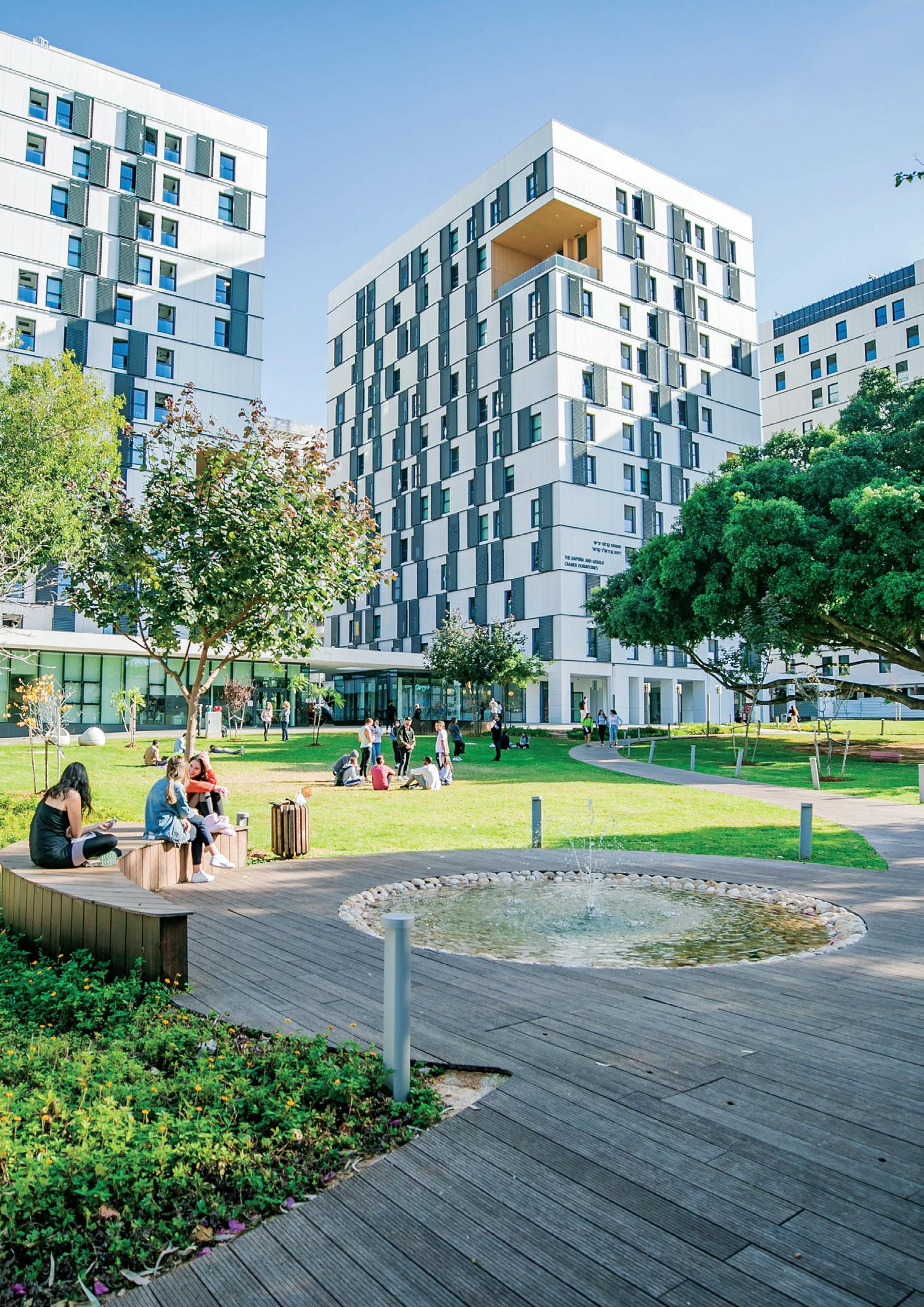
YOASH DVIR CEO TECHNION AUSTRALIA
Each year, the US research firm PitchBook releases a ranking of universities by the entrepreneurial success of their alumni. The latest report brought extraordinary news: the Technion – Israel Institute of Technology – has entered the global top 10 for Bachelor’s degree graduates who founded companies.
The data is striking. Over the past decade, Technion alumni have founded more than 1,000 companies, raising upwards of US$43 billion in capital. Among those who studied only at the undergraduate level, nearly 670 companies have been launched, raising US $26 billion. For a university with under 30,000 students, this is a remarkable density of entrepreneurial activity and places the Technion alongside much larger American institutions, such as Berkeley, Stanford and Harvard.
However, numbers only tell part of the story. They raise a deeper question: why has Israel and the Technion, in particular, become such a fertile ground for entrepreneurship?
Writers Dan Senor and Saul Singer explored this puzzle in their 2009 book Startup Nation. Their argument was that Israel’s innovative drive is not a happy accident, but a product of circumstance and culture. Living in a region with scarce
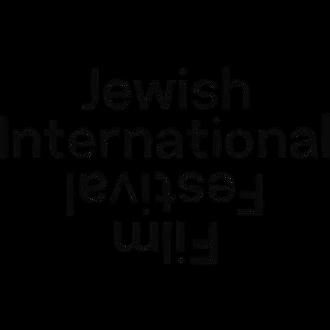
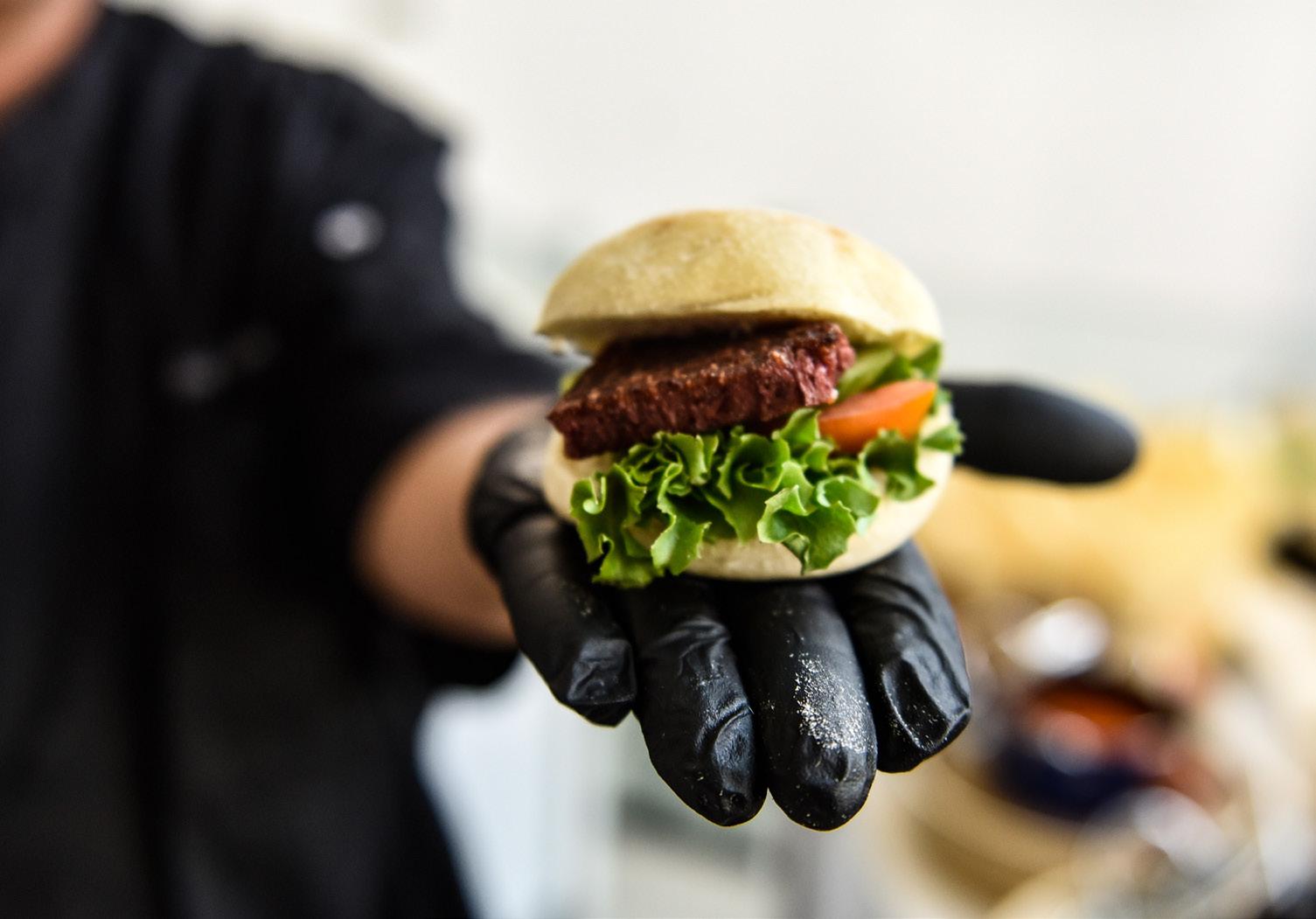
natural resources, Israel has had to rely on ingenuity rather than geography.
As the authors put it, “The country’s adversity and isolation forced it to be resourceful and self-reliant.”
Compulsory military service also plays
the skills that entrepreneurship demands. Cultural traits matter too. Israeli society is famously informal and questioning. Students feel comfortable challenging professors; young employees push back on their bosses. What might look like
incubator. Since its founding in 1912, it has been committed to marrying basic science with applied research. Its graduates include Nobel laureates, the engineers who built Israel’s first satellites and the founders of many of its bestknown technology firms.
Recent years have seen a deliberate expansion of entrepreneurship programs: t:hub, which provides students with mentoring and resources for startups and T3, which helps commercialise university research. These initiatives strengthen the link between academic discovery and industrial application.
Yet what makes the Technion stand out is not just institutional programs, but a tradition of encouraging students to see themselves as problem-solvers with global responsibilities.
The PitchBook list is a snapshot, but the broader story is about how knowledge can be harnessed to meet challenges. Israel’s trajectory from a resource-poor state to an innovation hub suggests that adversity can be a springboard for creativity. The Technion’s place in the global top ten is not simply a point of pride for Israel; it is a reminder of the ways universities can serve as engines of
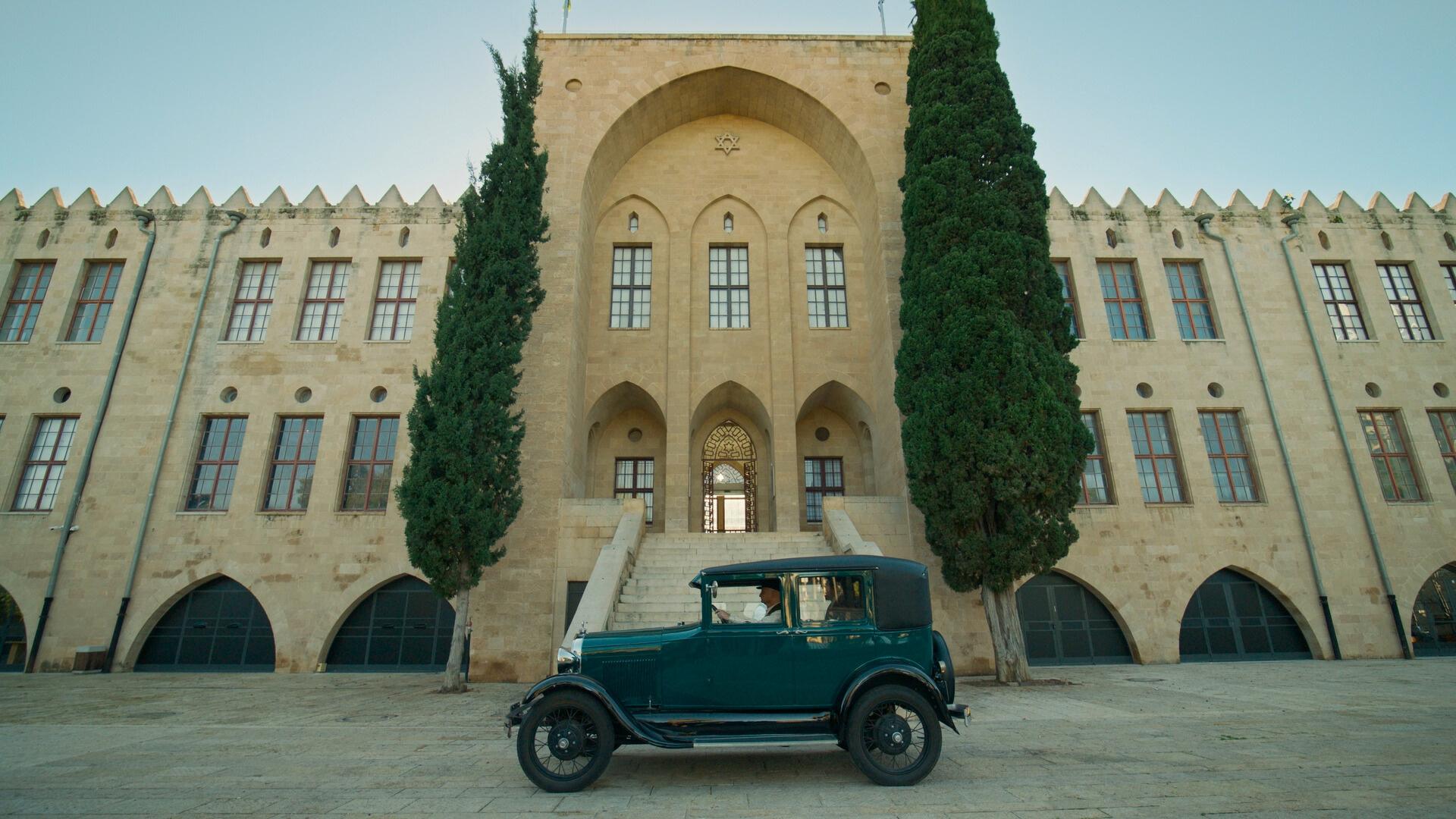



Sydney: Tues 28th Oct, 6:50pm
Thurs 30th Oct, 6:50pm


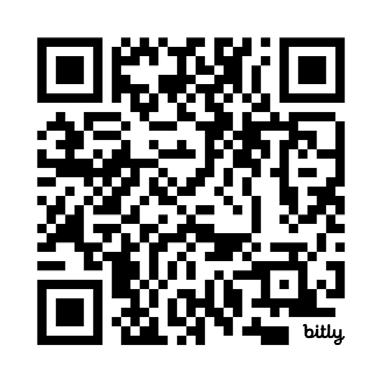
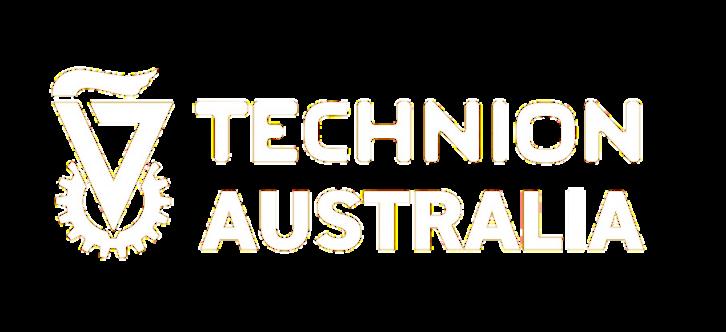
RABBI DR BENJI LEVY RABBINIC THOUGHT
One of the most beautiful and mysterious customs of Sukkot is the invitation of the ushpizin, the “lofty guests”, into the sukkah. Each evening, we symbolically welcome one of seven biblical figures: Abraham, Isaac, Jacob, Moses, Aaron, Joseph and David. At first glance, this may appear unusual. Yet, with the right awareness, these guests are not simply visitors from the past; they become present within us and those around us, guiding us to live with greater purpose.
Each of the ushpizin embodies a distinct divine trait. Abraham represents kindness and hospitality. Isaac is about strength and faith. Jacob reflects harmony and balance. Moses embodies perseverance. Aaron brings peace and humility. Joseph personifies vision and connection. David represents the sovereignty of the heart, reminding us that true leadership is not rooted in power, but in service. Each night of Sukkot highlights one of these qualities, offering us the opportunity to reflect on how we can bring it more fully into our lives.
The sukkah itself mirrors this exercise in spiritual growth. Its walls are temporary, its roof lets the stars shine through and leaves us exposed to the elements. It is not permanence that brings us joy during this festival, but presence.
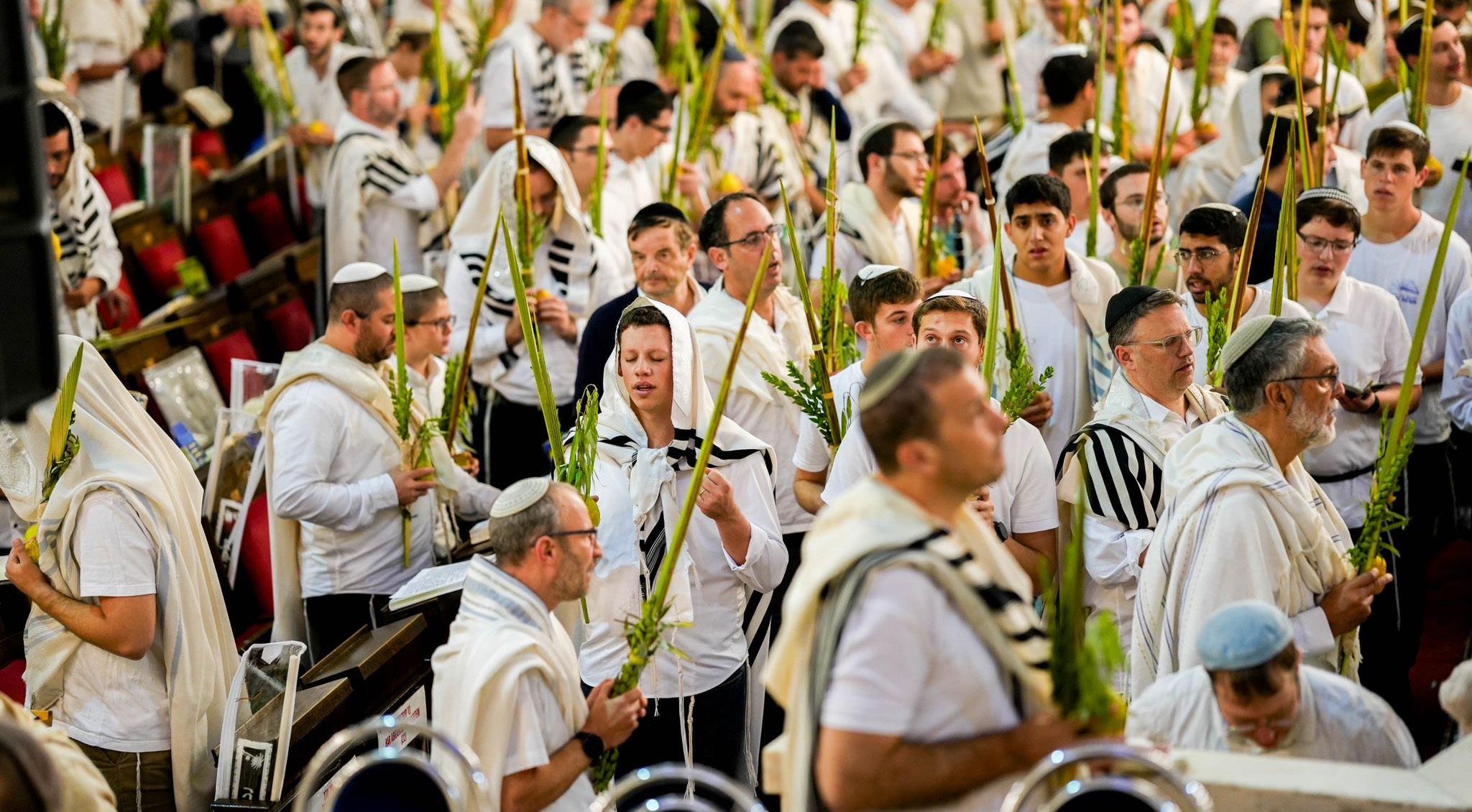
The sukkah teaches us that while our homes and possessions are fragile, our souls are capable of connection that transcends time, space and circumstance. In my ushpizin series, I explore how each guest holds up a mirror to us. When Abraham enters, we are challenged to ask who we are welcoming into our lives and who we may be neglecting. When Isaac joins, we are called to reflect on our own
inner strength and how we maintain faith, even in hardship. When Jacob arrives, we are reminded of his reconciliation with Esau and asked how we can bring peace into fractured relationships.
When Moses visits, we are urged to persevere in the face of challenge and to lead with conviction. Aaron’s presence reminds us to strive for harmony in our communities. Joseph calls us to ground our
Two years. I never thought I’d say those words and our Jewish brothers and sisters would still be in captivity. I never thought that in 2026, there would be Jewish hostages held ransom, while the world does nothing to facilitate their return. I never believed that in my lifetime that I would sing the crusader era song “Acheinu”, written about Jewish hostages in the Middle Ages and feel that each word resonates so deeply and tragically.
Do you remember where you were when you heard that a war had broken out in Israel? For me, it takes me straight to Sukkot. I feel the palpable joy of Simchat Torah … the excitement of everyone as we finished reading the Torah and we danced at the Ark Centre. So much joy. And yet, as the news from Israel began to trickle in, I remember someone approaching me at shule.
“War has broken out in Israel,” they told me. “Hundreds of people are dead and hundreds of hostages have been taken.” I couldn’t comprehend what they relayed. “What?”, I said, shocked. “How?” I didn’t even understand that such a thing was possible. The night before chag began, I had been listening to a podcast that was talking about the difficulties that Israel was going through, specifically the mass government protests against the overhaul of the Supreme Court’s make up. How thousands of Israelis had spent months protesting against the judicial reform. In all those fraught months, it felt like Israel was on the brink of a potential civil war, tearing itself apart at the seams.
And yet, there had been no talk of a real war. Certainly not what we have been witnessing for the past two years. Despite the hardships, I try very hard to see a silver lining. Jewish people across the world have united behind Israel. We have sent messages of solidarity and support. We have sent physical and virtual hugs. We have gone on missions. We have donated. We have protested. We have tried to raise the profile of the 40 innocent civilians who are still languishing in Gaza, waiting to return to their families.
I never thought I’d live through something so historic and so horrible. In years to come, my grandchildren will ask me what it was like to live through October 7, 2023. I know that I won’t be able to properly convey the horror and dread that struck the heart of every Jewish person, no matter where they lived. How very sobering to hear that it was the greatest slaughter of Jewish people since the Holocaust. It was simply incomprehensible that innocent people could be taken and kidnapped, and spend 24 months languishing.
But I will also tell my grandchildren that it was a time of great unity. Where you really felt the sense of all Jewish people being responsible for one another. Where the global Jewish family came together, after months of disagreements, to pray, protest and help Israel in its time of need.
When I went to Israel early this year I was filled with hope. People were still shell shocked at what had happened, but, at the same time, there was a sense of optimism. “We will rebuild,” they told me. And I believe them.
May all our hostages be released. We pray for them every day.
Am Yisrael Chai.
dreams in reality. David inspires us to lead with humility and prayer.
Sukkot comes immediately after Rosh Hashanah and Yom Kippur, the Days of Awe. During that period we turn inward, examining our actions, repairing relationships and realigning with our values. Sukkot transforms that inward focus into outward expression. We leave our homes, dwell in a sukkah, invite guests, shake the lulav and etrog, and sing with joy. The festival demonstrates that holiness is not only found in solemnity, but also in celebration.
Ultimately, the test of Sukkot is not whether we decorate our sukkot beautifully or host elaborate meals. The true measure is what we carry forward when the festival ends. Do we take the lessons of kindness, resilience, peace and vision into the rest of the year? Do we live as if the ushpizin are still seated at our tables, guiding our choices and inspiring our actions?
For those who would like to explore these themes further, I invite you to view my ushpizin video series, available on my website: https://www.rabbibenji.com/ ushpizin
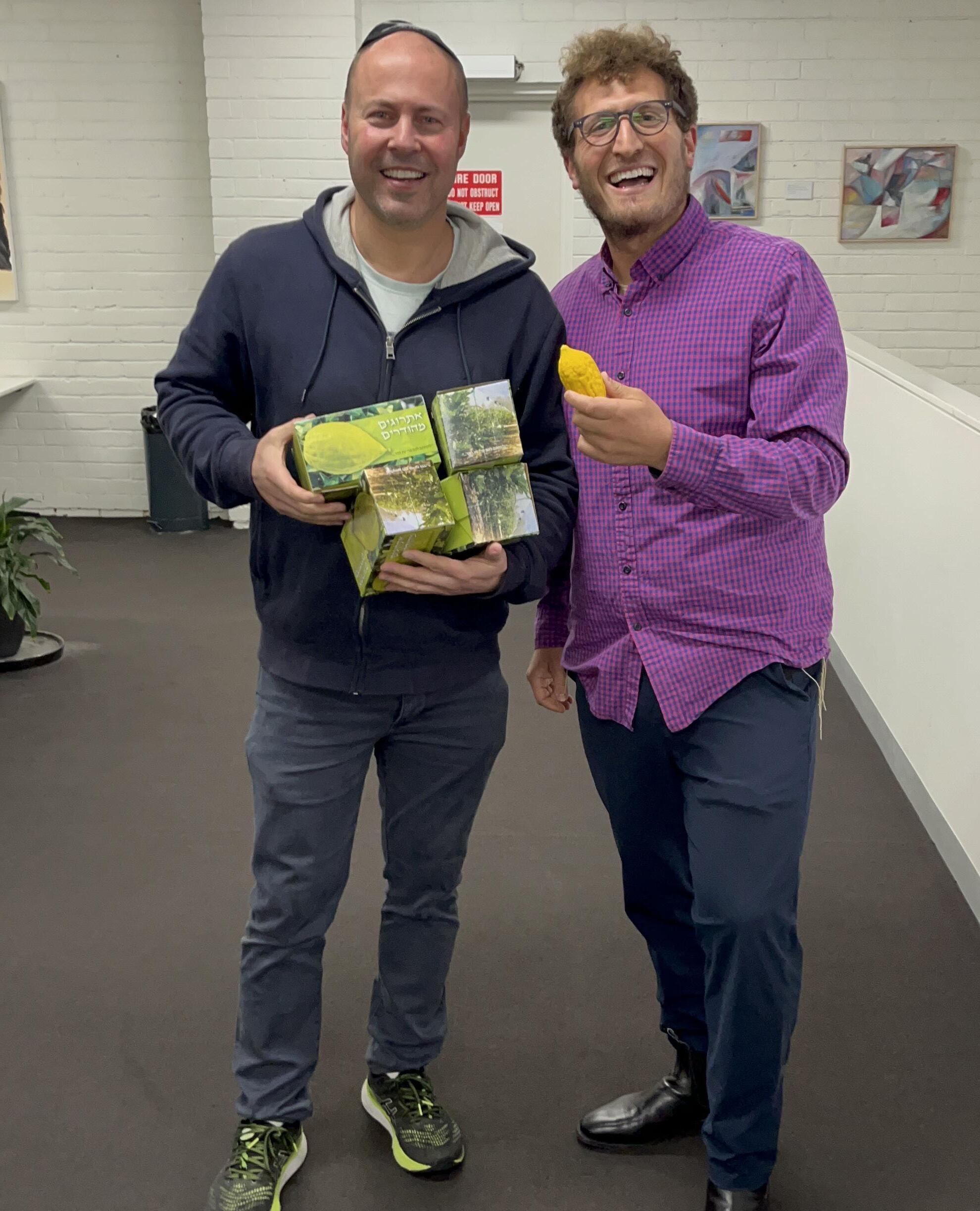
RABBI YAAKOV GLASMAN RABBINIC THOUGHT
Attended by almost 600 people, St Kilda Shule recently hosted journalist and broadcaster Erin Molan. None were left unmoved by Erin’s courage, clarity and conviction. In a time where moral confusion has become tragically common, Erin’s voice was a powerful reminder of the integrity and truth that we should all aspire to. I had heard and seen Erin speak on television, in interviews and on social media, but nothing prepared me for the raw power and emotional honesty of hearing her in person. She spoke not only as a journalist and commentator, but as a mother, a daughter and as a deeply principled human being. Erin reminded us that to stand with Israel is not a political position, but a principed one and that speaking up against antisemitism is not a favour to the Jewish people, but a duty shared by all people of conscience.
Erin’s journey began on October 7, 2023, when Hamas committed unspeakable atrocities against innocent civilians in Israel. What shook her more deeply was what happened in the days that followed. On October 9, as antisemitic mobs gathered outside the Sydney Opera House chanting vile slogans, the message was clear: hatred of Jews was no longer hidden in the shadows, it was out in the open and in some cases, legitimised. Erin rightly called it “our moment as a country to say ‘no’ ” and lamented how many, especially
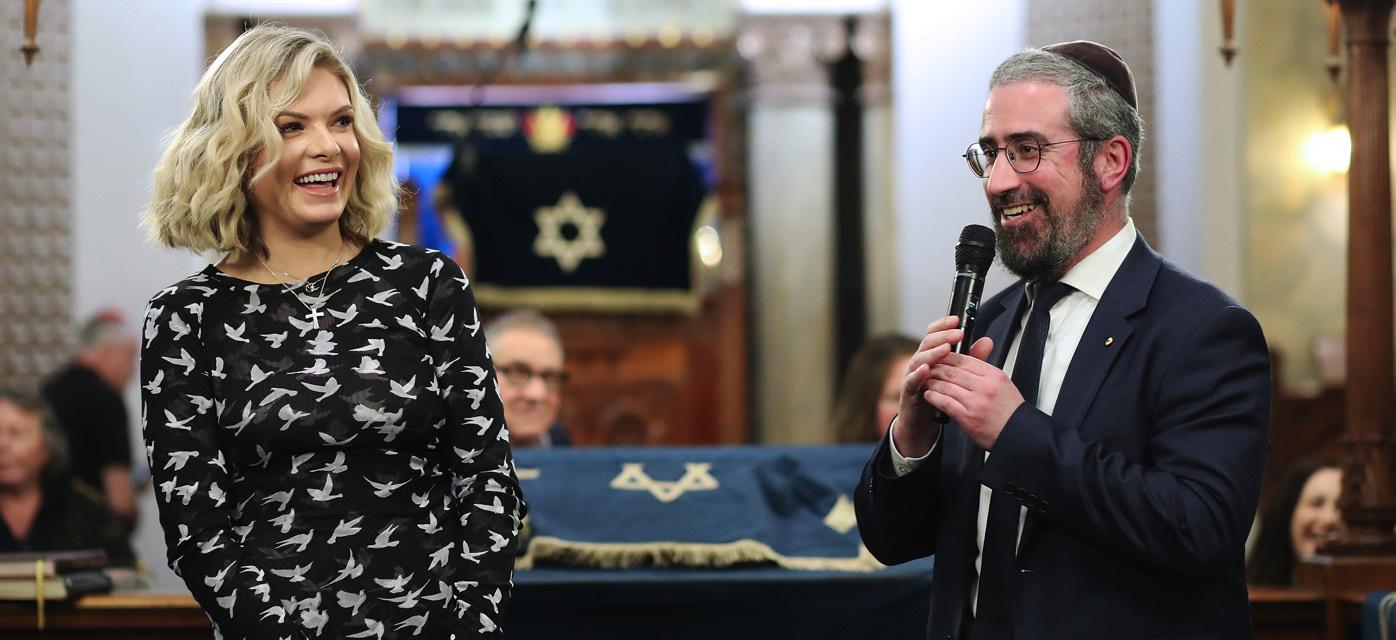
among our leaders, failed that test. Erin shared with us her horror at the reactions from some in the media and politics who remained silent or labelled the attacks as “resistance”. “There is nothing complex about this,” she said. “It is good versus evil.” Her words resonated deeply with our community, which has long felt the sting of double standards and relativism when it comes to Israel and Jewish life.
Since October 7, Erin has travelled to Israel several times to witness firsthand the
destruction. She has spoken with survivors and reported from the ground during the Iranian missile attacks in June. She has risked her own safety in her commitment to the truth. Death threats, online abuse and slander have come her way, yet she has not wavered. She spoke movingly of her late father, the much-loved senator, Major General Jim Molan, who instilled in her an unshakeable moral compass and she carries his legacy with grace and strength. Erin told us, “It is the greatest purpose
I’ve ever felt.” As I listened to her speak, I was struck not only by her passion, but by the deep emotional connection she feels to our people and the overwhelming love our community feels for her in return. At a time when many choose comfort over courage, Erin Molan has chosen the path of righteousness. Her presence in our shule gave our community hope, strength and a reminder that we are not alone. Erin, we are grateful for your voice … and we are proud to call you a friend.
It is not every day that a Melbourne rabbi finds himself in Papua New Guinea. Yet recently, I spent just over 24 hours in Port Moresby. I had been invited to speak at two community events, alongside Israel’s Ambassador to the Pacific, Roi Rosenblit. What I experienced left a lasting impression, one worth sharing with our Jewish community.
From the moment I arrived, I was embraced with warmth and friendship. I had heard of PNG’s natural affinity for Israel, but nothing could have prepared me for the depth of feeling I encountered. People went out of their way to express their love for the Jewish people and their unwavering support for the State of Israel. At both events, I was enthusiastically welcomed. Afterwards, I was surrounded by people of all ages who wanted to take selfies, shake my hand and share blessings. Some spoke of their dream to visit Israel. Others told me their hearts break for our people and that they pray daily for peace and safety.
The gatherings were filled with song and celebration. This year, PNG is marking its 50th anniversary of independence. A sense of pride in their own story is instructive in how they relate to ours.
In the middle of a state dinner, PNG Prime Minister James Marape stepped away to spend a few minutes with me. That simple gesture spoke volumes. It reflects on the importance Papua New Guinea places on its bond with Israel and the Jewish people. I witnessed how leaders, influencers and young people connect with Israel. They
are eager to learn more, to deepen ties and to stand publicly as allies. In private conversations, we discussed practical ideas to further strengthen relationships –through education, cultural exchanges and friendships that transcend politics.
Ambassador Rosenblit spoke passionately about Israel’s role in the Pacific and its friendships across the region. To hear how deeply countries like Papua New Guinea value their ties with Israel was both life affirming and humbling. In a world where criticism of Israel often dominates headlines, it was refreshing to stand in a place where support is loud and proud.
What did I take away from all this? First, a renewed sense of pride. Sometimes, in our Jewish lives, we can feel weighed down by negativity. Standing in PNG, hearing songs of love for Israel, sung by people far from our daily struggles, reminded me that the Jewish story resonates far beyond our borders.
Second, I learned the power of connection. A smile, a word of Torah, even a selfie – all of these can become bridges. In those moments I saw the truth of the verse, Am Yisrael Chai, the people of Israel live. Not only in our resilience at home, but in the way our story touches hearts across the globe.
Now back in Melbourne, I carry with me the faces, voices and songs of PNG. That, plus their blessings for Israel, their respect for our tradition and their desire to stand side by side with us. And I carry a message for our own community: never underestimate how far our story travels, nor how many friends we truly have. Sometimes the most powerful reminders come from the most unexpected places.
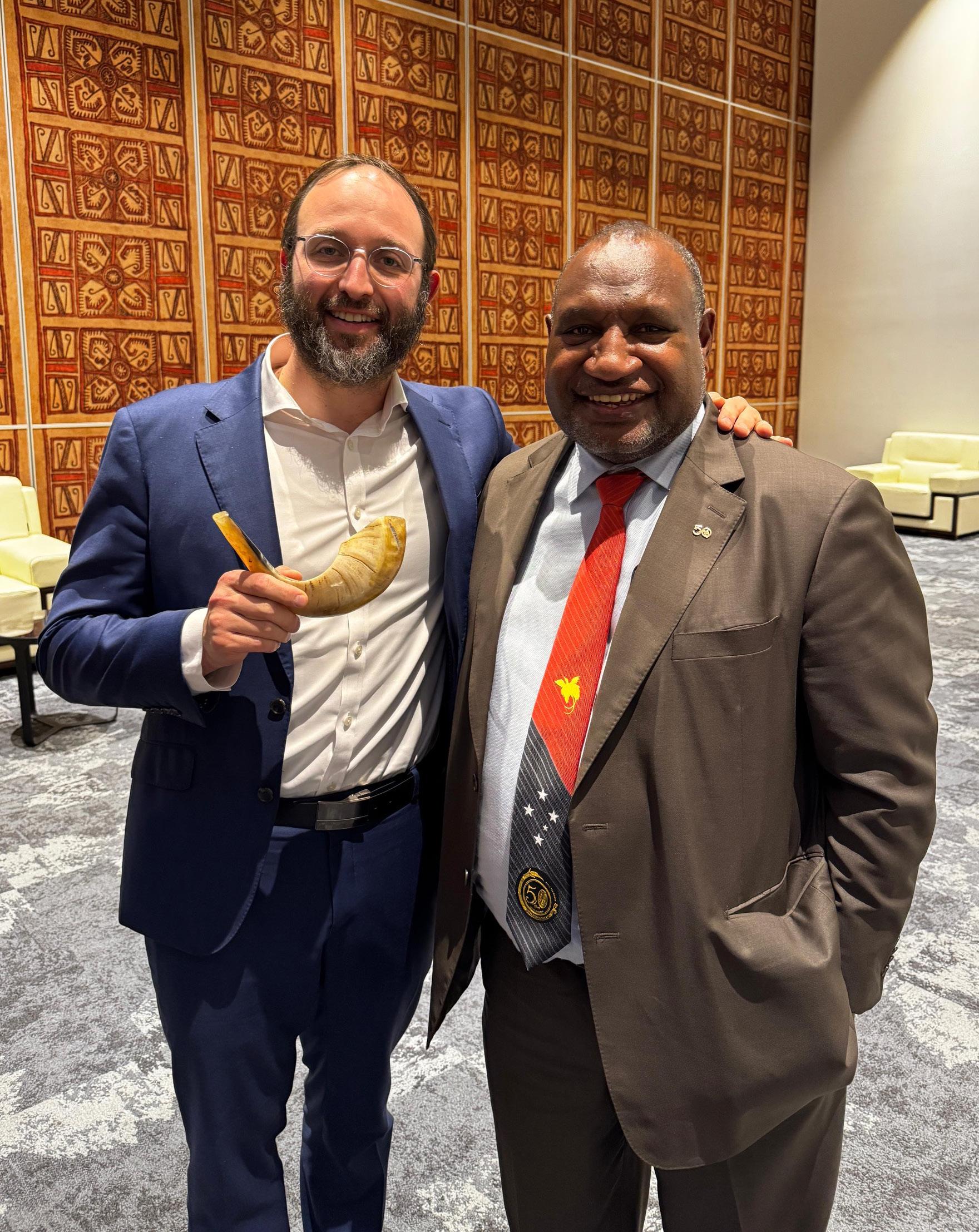
Friday, Nov 22, 2024 8:00 PM
Friday, Nov 22, 2024 8:00 PM
Shabbat ends, Nov 23, 2024 9:04 PM
Shabbat ends, Nov 23, 2024 9:04 PM
Friday, Nov 29, 2024 8:07 PM
Friday, Nov 29, 2024 8:07 PM
Question:
Shabbat ends, Nov 30, 2024 9:12 PM
Shabbat ends, Nov 30, 2024 9:12 PM
Why is it that all kids love getting BandAids? Even when there doesn’t seem to be any visible injury, my children ask for one and somehow they feel better the moment it is put on.
Friday, Dec 6, 2024 8:13 PM
Friday, Dec 6, 2024 8:13 PM
Shabbat ends, Dec 7, 2024 9:19 PM
Shabbat ends, Dec 7, 2024
Friday, Dec 13, 2024
Friday, Dec 13, 2024 8:19 PM
Shabbat ends, Dec 14, 2024
Shabbat ends, Dec 14, 2024 9:25 PM
Answer:
Every parent knows, Band-Aids are not just about Band-Aids. They are about reassurance, about comfort, about feeling safe again after a tumble.
Friday, Dec 20, 2024 8:23 PM
Friday, Dec 20, 2024 8:23 PM
Shabbat ends, Dec 21, 2024 9:29 PM
Shabbat ends, Dec 21, 2024 9:29 PM
When your child comes running to you, clutching their finger or pointing to their knee, what they are really saying is: “I fell over. I hurt myself. Am I going to be okay? Will this pain pass? Will I get better? And, most importantly, do you still love me, even though I messed up and got hurt?”
Melbourne Jewish Report Disclaimer:
The little adhesive strip is more than medical attention. The bandage is a symbol. It represents patching up my blunder, repairing my imperfection, soothing my pain and helping me to bounce back. When you hand a BandAid to a child, you are really saying: “Yes, everything will be fine. You are safe. You are loved.” Sometimes you don’t even need the Band-Aid itself. The same
Except where expressly stated otherwise, content in The Melbourne Jewish Report is provided as general informations only. The articles in this paper have been contributed by a third party. The opinions, facts and any media content here are presented solely by the author, and The Jewish Report assumes no responsibility for them. It is not intended as advice and must not be relied upon as such. You should make your own inquiries and take independent advice tailored to your specific circumstances prior to making any decisions. We do not make any representation or warranty that any material in the papers will be reliable, accurate or complete, nor do we accept any responsibility arising in any way from errors or omissions. We will not be liable for loss resulting from any action or decision by you in reliance on the material in the papers. By reading the papers, you acknowledge that we are not responsible for, and accept no liability in relation to, any reader’s use of, access to or conduct in connection with the papers in any circumstance.
Except where expressly stated otherwise, content in The Melbourne Jewish Report is provided as general informations only. The articles in this paper have been contributed by a third party. The opinions, facts and any media content here are presented solely by the author, and The Jewish Report assumes no responsibility for them. It is not intended as advice and must not be relied upon as such. You should make your own inquiries and take independent advice tailored to your specific circumstances prior to making any decisions. We do not make any representation or warranty that any material in the papers will be reliable, accurate or complete, nor do we accept any responsibility arising in any way from errors or omissions. We will not be liable for loss resulting from any action or decision by you in reliance on the material in the papers. By reading the papers, you acknowledge that we are not responsible for, and accept no liability in relation to, any reader’s use of, access to or conduct in connection with the papers in any circumstance.
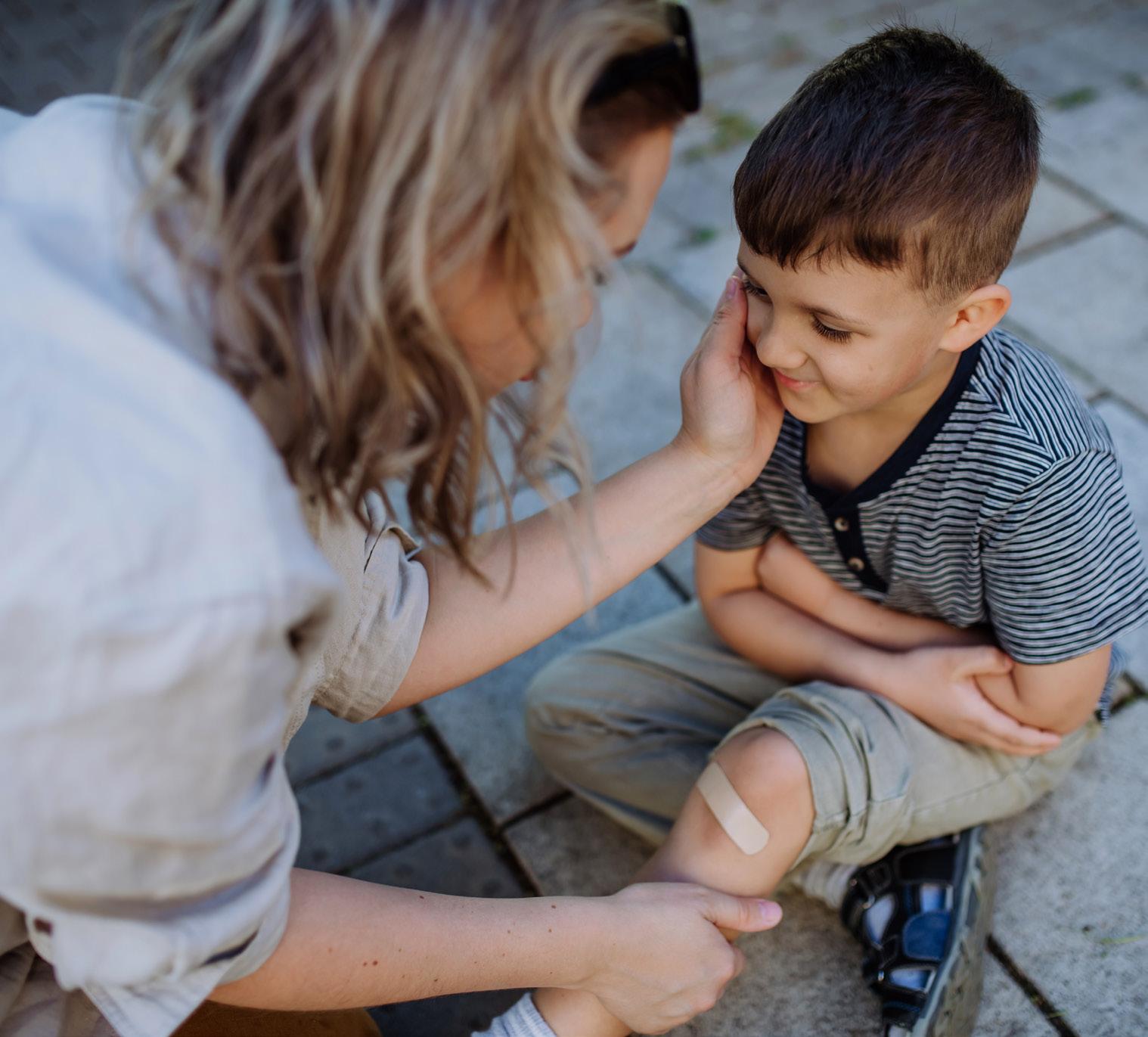
invites us into the Sukkah. The walls of the Sukkah surround us with holiness, warmth and divine love.
For those who mean the world to you, only the finest will do.
As we sit inside, we are wrapped in what the mystics call tzeila d’mehemenusa, the “shadow of faith”. What that really means is that we are sitting in G-d’s hug. The Sukkah tells us: “You may have stumbled, but you are still precious. You are safe in My embrace.”
That is the power of the festival. We have stood up again after falling, we are healing from our inner wounds and, as we take our place in the Sukkah, G-d whispers to us that despite our mistakes or, perhaps, even because of them, we are loved beyond measure.
There is nothing as endearing as a little child showing their parent a sore finger, looking up with pleading eyes and asking for comfort.


Photographs submitted by individuals or organisations are assumed to be their property and are therefore not otherwise credited. All articles in this paper have received the expressed consent of the author to publish in this paper.
Photographs submitted by individuals or organisations are assumed to be their property and are therefore not otherwise credited. All articles in this paper have received the expressed consent of the author to publish in this paper.
Ian Sharp Jewellery Craftsmanship iansharpjewellery


The Jewish Report; ISSN 2204-4639
The Jewish Report; ISSN 2204-4639
Publisher: The Jewish Report Pty Ltd (ACN 167302981)
Publisher: The Jewish Report Pty Ltd (ACN 167302981)
Distributor: TJR Distribution Pty Ltd ACN 165158029
Distributor: TJR Distribution Pty Ltd ACN 165158029
Comments or suggestions to: editor@thejewishreport.com.au
Comments or suggestions to: editor@thejewishreport.com.au
reassurance can be conveyed with a kiss, a warm hug or a gentle word. A Band-Aid is a hug in miniature. It is small, simple, but full of love.
reflecting and asking for forgiveness for our mistakes. It is intense, beautiful and also draining.
The Band-Aid is the parent’s way of saying, “I see you, I love you and I am here.” That is what Sukkot is for us: the cosmic reassurance that our Father in Heaven still loves us, unconditionally and eternally.
Article submissions to: www.thejewishreport.com.au/article-submission-guidelines
Article submissions to: www.thejewishreport.com.au/article-submission-guidelines
Advertising: editor@thejewishreport.com.au
Advertising: editor@thejewishreport.com.au
Website: www.thejewishreport.com.au
Website: www.thejewishreport.com.au
Printer: Spotpress Pty Ltd
Printer: Spotpress Pty Ltd
This is exactly why the festival of Sukkot follows straight after Yom Kippur. On Yom Kippur, we spend a whole day fasting,
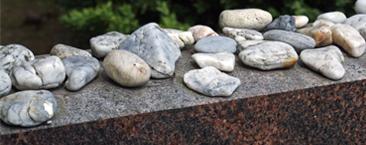

We come out of the day cleansed, but perhaps feeling a little fragile, a little bruised. And so, immediately afterwards, G-d places a Band-Aid on our soul. He
65 Toorak Road, South Yarra, VIC 3141 P: 03 9866 4983 e: sales@iansharp.com.au www.iansharp.com.au
So next time your child asks for a BandAid, give them one with a smile and wish them better. And next time you feel that maybe G-d is not happy with you, remember the Sukkah and wish yourself “Hug Sameach”.



ALAN BENDER SOUL GOURMET FOODIE
Roast sweet potatoes:
2 large orange sweet potatoes, cut into smallish cubes
1-2 tbsp olive oil or other neutral oil
1 tsp dried oregano
½ tsp smoked paprika
2 tsp taco seasoning or seasoned salt of your choice
Beef taco mince:
2 tbsp olive oil
500 grams extra lean beef mince
2 tbsp taco seasoning
1 tsp garlic powder
1 tsp onion powder
1 tsp smoked paprika
½ tsp salt
2 tbsp tomato paste
1 cup beef stock
Toppings (per bowl):
3-4 tbsp tofu or pareve cottage cheese
¼ cup tomato and red onion salad
¼ cup cabbage slaw
¼ large avocado sliced
2 tsp hot honey (optional)
Fresh coriander leaves (optional) Lime wedge (optional)
Method:
To make the roast sweet potatoes, preheat the oven (or air fryer) to 180°C/350°F.

Toss the cubed sweet potatoes into olive oil and seasoning. Roast for 25–30 minutes, until tender and golden at the edges.
Heat a large skillet over mediumhigh heat. Add the olive oil and beef mince.
Break it up and fry until it starts to brown. Add the spices and cook until aromatic.
Stir in the tomato paste and cook for a minute. Then add the stock. Simmer until the liquid reduces, but the mixture remains juicy. Set aside.
To assemble, add a scoop of sweet potatoes to each bowl, followed by the beef mince. Top with slaw, salad, avocado and cottage cheese. If you like, drizzle with hot honey, garnish with coriander and squeeze over fresh lime.
Jewish Answer: POSKENED. Here is a list of some common words (“yes”, we know there are more words in the dictionary that can work, but these words are common to today’s vernacular): DEKED, DEKES, DESKS, KEENNESS, KEEPS, KNEED, KNEES, KOOKS, NOOKS, PEEKED, PEEKS, PEKOE, POKED, POKES, POSKEN, POSEK, SEEKS, SPEEK, SPEEKS, SPOKE, SPOKEN, SPOKES, SPOOK, SPOOKED and SPOOKS. Questions/comments/compliments: email Yoni at koshercrosswords@gmail.com
Melbourne Jewish Report Disclaimer:
Except where expressly stated otherwise, content in The Melbourne Jewish Report is provided as general informations only. The articles in this paper have been contributed by a third party. The opinions, facts and any media content here are presented solely by the author, and The Jewish Report assumes no responsibility for them. It is not intended as advice and must not be relied upon as such. You should make your own inquiries and take independent advice tailored to your specific circumstances prior to making any decisions. We do not make any representation or warranty that any material in the papers will be reliable, accurate or complete, nor do we accept any responsibility arising in any way from errors or omissions. We will not be liable for loss resulting from any action or decision by you in reliance on the material in the papers. By reading the papers, you acknowledge that we are not responsible for, and accept no liability in relation to, any reader’s use of, access to or conduct in connection with the papers in any circumstance. Photographs submitted by individuals or organisations are assumed to be their property and are therefore not otherwise credited. All articles in this paper have received the expressed consent of the author to publish in this paper.
The Jewish Report; ISSN 2204-4639
Publisher: The Jewish Report Pty Ltd (ACN 167302981)
Distributor: TJR Distribution Pty Ltd ACN 165158029
Comments or suggestions to: editor@thejewishreport.com.au
Article submissions to: www.thejewishreport.com.au/article-submission-guidelines
Advertising: editor@thejewishreport.com.au
Website: www.thejewishreport.com.au
Printer: Spotpress Pty Ltd
Opening night saw Melbourne embrace the power, the passion and the perfection of one of the world’s great entertainers, Michael Jackson.
Driven by his hard-edged father, Joseph, Michael sought excellence – faultlessness.
That is behind his approach to his 1992 Dangerous World Tour, which plays out in rehearsals, as well as in a nostalgic look back, in MJ: The Musical.
It is an aural and visual spectacle, with powerhouse performances, led by Ilario Grant, who also played Jackson in the Broadway production of the show.
The pressure to succeed, to top the triumph of the Bad World Tour, which started in 1987, and placate the naysayers, was overwhelming.
Inspired by bold ideas, Jackson would make several, ambitious, highly expensive, financially risky, last-minute changes to his offering.
These had his support team on edge. In fact, he risked losing his safe place, his haven, his respite from the prying eyes of the world, his beloved Neverland Ranch.
Already a multiple Grammy winner, MJ’s focus is on the music and the magic he can create.
His backing dancers are first class, but he still wants to draw more from them.
He rides himself and them hard. It is all about upping the ante and giving the audience something they have never seen before.
He is most at home when he is on stage wowing the crowd.
Jackson is feeling the pressure and popping pills regularly.
Tour director Rob (Derrick Davis) is trying to reason with him, but Michael won’t hear of it.
MJ visualises what he is after and expects Rob to toe the line. In fact, Jackson won’t take no for answer, regardless of the cost. An MTV reporter Rachel (Penny
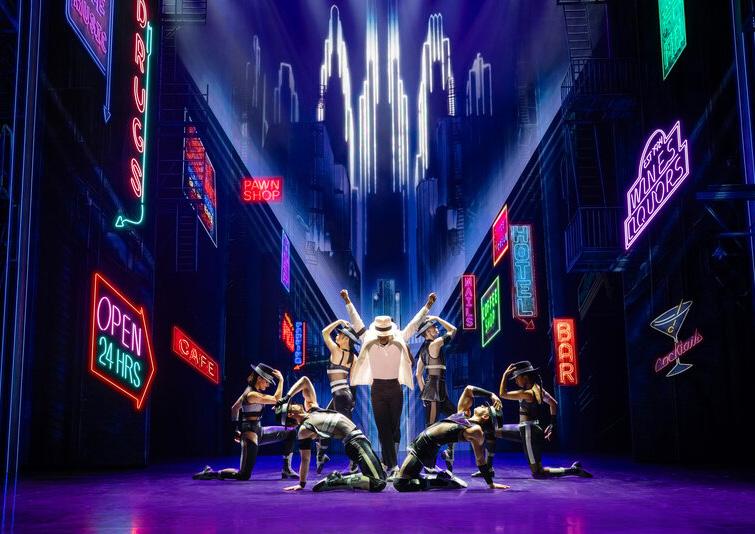
McNamee) and cameraman Alejandro (Yashith Fernando) have been given unparalleled access to him for two days. Their assignment is to record a puff piece on the tour.
But Rachel is determined to go further and ask Michael some hard questions, including probing him about rumours that have been circulating. Jackson, who shuns the media, hasn’t given an in-depth interview for 14 years.
He reflects upon what shaped him, scared him and scarred him (in so doing, the musical doesn’t shy away from highlighting his demons).
So it is that we learn about his controlling, womanising father Joseph (again Derrick Davis) and the emergence of the Jackson Five.
His mother Katherine (Josslynn Hlenti Afoa) is forever defending Joseph’s harsh demeanour as a sign of love and him
wanting to further the family. As Jackson’s solo career begins to take off, he is taken under the wing of Motown record label founder Berry Gordy (Wonza Johnson).
Not content, Jackson teams up with another famed record producer in Quincy Jones (Conlon Bonner), before branching out again. So it is that the action in MJ: The Musical moves back and forth in time as the Dangerous tour is imminent.
Allegations of improper sexual conduct by Michael Jackson are never mentioned.
With book by Lynn Nottage, this is a thoroughly entertaining jukebox musical, adroitly directed and choreographed by Christopher Wheeldon, OBE.
Ilario Grant is a revelation as Jackson –the high-pitched voice, the mannerisms, the look, the smooth dance moves, the presence. He is the complete package.
In fact, the choreography in MJ: The Musical is masterful, as are the seamless
transitions between scenes. Liam Damons does a fine job as the teenage Michael and William Bonner is confident as Little Michael.
Derrick Davis plays Joseph Jackson with a scowl and an iron hand, while bringing authority, but a more conciliatory air to tour director Rob.
Mighty impressive is the golden tone of Josslynn Hlenti Afoa as MJ’s mother and Joseph’s wife, Katherine.
Penny McNamee injects tactical nous into the go-getting MTV reporter, alongside her fanboy cameraman Alejandro, a role readily filled by Yashith Fernando.
They are backed by an accomplished ensemble and ear pleasing band, under music director Michael Azzopardi.
Derek McLane’s scenic design and Peter Nigrini’s projection design elevate the spectacle, with pops of colour dazzling.
With frequent wardrobe changes, especially for MJ, Paul Tazewell’s glittering, colourful costuming is yet another highlight.
That is not to overlook the neon lighting showcase by Natasha Katz and striking sound design by Gareth Owen.
And, of course, then there is the music –from Beat It, Billie Jean and Black or White, to Man in the Mirror, Smooth Criminal, Thriller and so many more. What a catalogue of hits laid out on a platter and performed with gusto!
There is no doubt that success for Michael Jackson came at a price, but because of his drive and unquestionable talent, his legacy lives on.
That is captured in glorious fashion in a show that has the audience genuinely invested, engaged and excited – as well they should be.
MJ: The Musical sizzles.
It is playing at Her Majesty’s Theatre until 1st February, 2026.
In this family friendly tale, an ambitious, self-serving, 35-year-old Sydney TV weather presenter makes an unexpected sea change.
Inspired by the true story of Chris ‘Brolga’ Barns, he has been reimagined as Chris Masterman (Ryan Corr).
Chris has his eyes on a television hosting role when he inadvertently becomes public enemy #1, after a weather cross goes off the rails.
Suddenly jobless, with all doors seemingly closed to him, he is offered an opportunity in Broome.
Taking to the road, he hits a kangaroo and ends up stranded in Silver Gum, a small town outside Alice Springs.
It is there that he encounters a heartbroken, but driven 12-year-old Indigenous girl named Charlie (Lily Whiteley), who will change his life.
Charlie recently lost her dad, to whom she was close. He inculcated in her a love for roos, which he regarded as their totem.
After her father’s death, Charlie’s mother and his widow, Rosie (Deborah Mailman), moved to Silver Gum, where her blood relatives reside.
Charlie resents her mum for doing so. Now, Charlie spends her time as a loner,
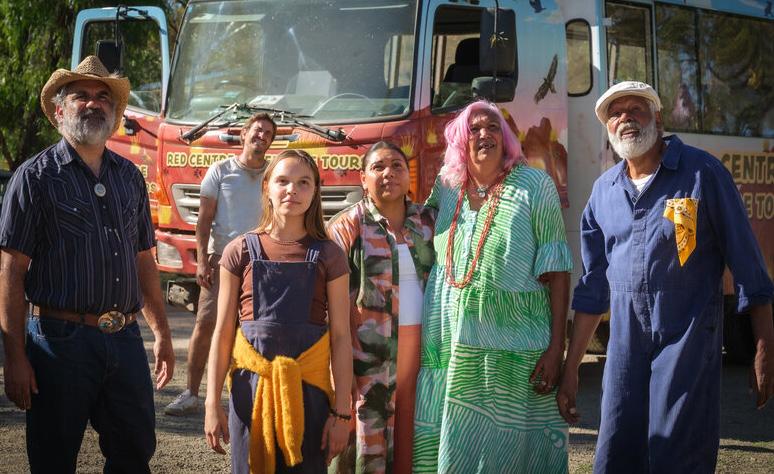
wagging school and secreting joeys into her room.
Charlie witnessed the aftermath of Chris hitting the roo, which had a joey in her pouch at the time.
She convinces Chris that is it now his responsibility to rear the animal, even though he has no knowledge of how to do so.
That is when Charlie lends a helping hand. One joey soon enough becomes
three and, suddenly, Chris is on an unlikely path of redemption.
Along the way, he also manages to turn around the town’s initial negativity towards him.
Unfolding with warmth and humour, Kangaroo is an endearing, quintessentially Australian story, which pulls at the heartstrings.
Even though I recognised that I was being manipulated by writer Harry Cripps,
I was up for what unfolded. It is the richness of the characters that make the movie compelling and a beaut watch across generations. Corr seems to effortlessly step up to the plate as an arrogant villain turned hero, who comes to recognise his shortcomings and learns how to become humble. Whiteley is a revelation as a girl on a mission, mature beyond her years, as Charlie forms an unmistakable bond with Chris.
Mailman brings a warm, infectious, immediately appealing personality to Rosie. There are so many other actors in the film that make Kangaroo as strong as it is. Among them, Rachel House is delightfully acerbic as bar owner Jess, while Roy Billing is prophetic as Murray. Ernie Dingo plays along nicely – with a glint in his eyes – as Charlie’s mechanic uncle, Dave. The outback cinematography by Kieran Fowler is spectacular and only the hard of heart wouldn’t be moved by the regular appearance of the little joeys.
I also loved Charlie running at pace alongside the big roos.
Director Kate Woods has crafted a little charmer with widespread appeal.
Rated PG, Kangaroo scores a 7½ out of 10.
For
A diverse program of films, documentaries, shorts and, even, a TV series awaits cinema goers at JIFF 2025.
The festival brings together the best Jewish-themed stories from around the world. Collectively, they span history and modern life, the personal and the political, the intimate and the epic.
JIFF 2025 reflects the richness of Jewish culture, from icons of music and literature to contemporary struggles and celebrations,” says Artistic Director Eddie Tamir. “The program is about sharing Jewish voices with all their differences and vibrancy. We welcome everyone to come and discover these stories.”
The opening night film, Bad Shabbos, won the Audience Award at Tribeca. This New York comedy finds two families – one Jewish, the other Catholic – gathered for a Shabbat dinner. The evening quickly descends into chaos after a corpse is discovered in the powder room.
Fresh from its Cannes premiere, the festival showcases Scarlett Johansson’s directorial debut, Eleanor the Great, starring June Squibb. It is about a brassy 94-year-old reinventing herself.
Other highlights
Richard Linklater’s Blue Moon, a Berlinale prize winner, features Ethan Hawke as lyricist Lorenz Hart, facing the decline of his career on the night Oklahoma! premieres.
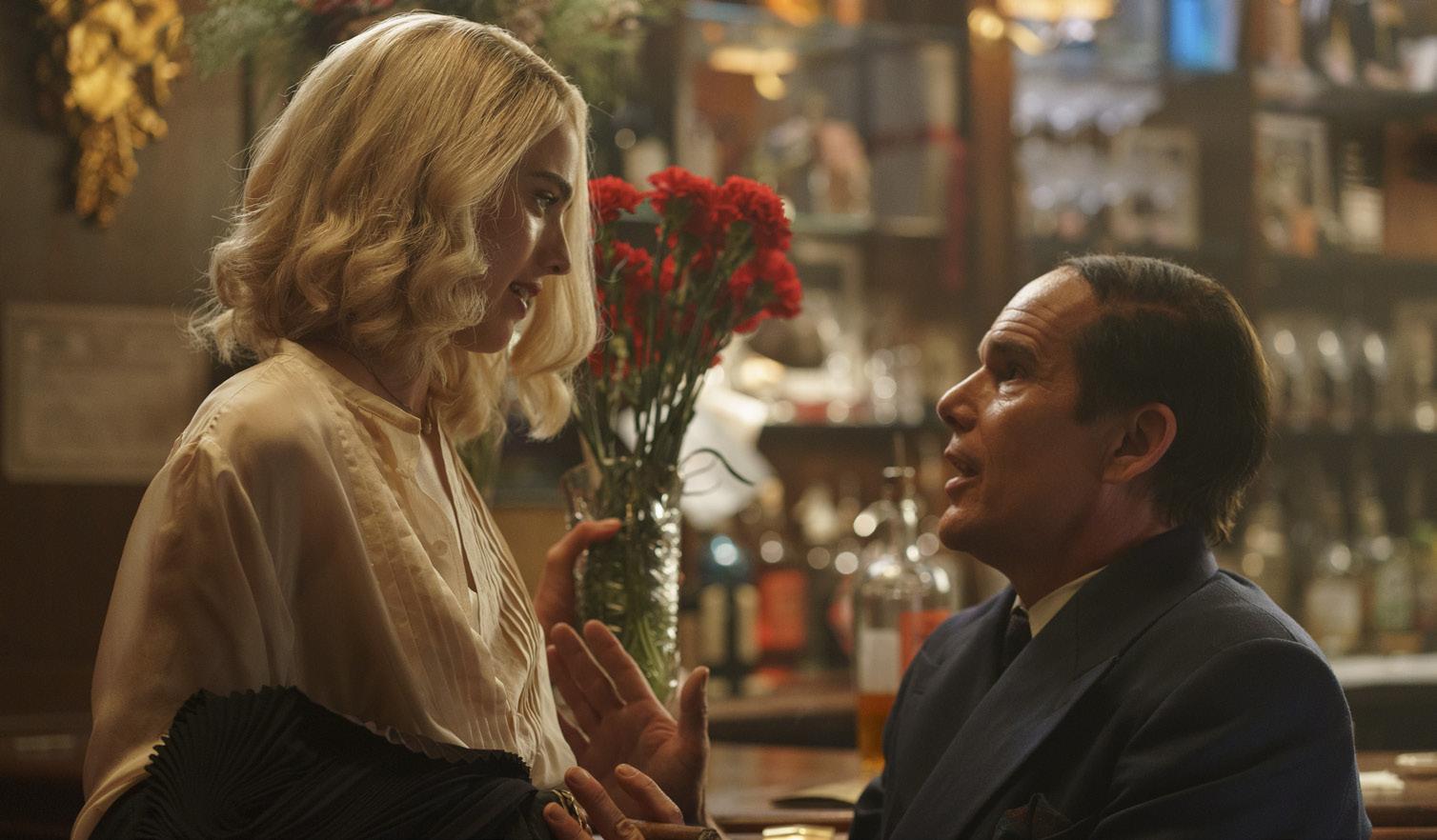
French box office hit Once Upon My Mother is adapted from Roland Perez’s memoir and celebrates maternal devotion.
Matthew Shear makes his feature directorial debut with the wry New York comedy Fantasy Life.
Nir Bergman’s Pink Lady, winner of Best Director at Tallinn, tells a nuanced story of secrecy, sexuality and desire in Jerusalem’s ultra-Orthodox community.
Australian voices take centre stage with the world premiere of TYCHO!
Beyond the Baton, celebrating Holocaust survivor and musical director Tommy Tycho. JIFF also presents special work-in-progress screenings of RISING:
Voices of Protest and Hope by Australian director Esther Takac. It is a documentary that follows five ordinary Israelis who have channelled the trauma of October 7 into grassroots activism.
This year’s Short Film Fund program premieres four original works that interpret the theme post-October 7 life in Australia.
The festival also includes powerful new films grappling with history, memory and the legacies of persecution.
The Disappearance of Josef Mengele, directed by Russian dissident Kirill Serebrennikov, imagines the postwar years of the notorious Auschwitz doctor.
Elie Wiesel: Soul on Fire capitalises
upon unprecedented archival access and Wiesel’s own voice to create a holistic portrait of a private man.
From Darkness to Light investigates Jerry Lewis’s unfinished and longsuppressed film The Day the Clown Cried. At the heart of JIFF 2025 is a major retrospective marking the 40th anniversary of Claude Lanzmann’s monumental Shoah, screening in a newly restored digital print.
Screening alongside it is All I Had Was Nothingness, a Berlinale-premiered documentary drawn from more than 220 hours of Lanzmann’s unused footage.
TV series
The Zweiflers, a six-part series, is described as “the German Succession”. It follows a Jewish deli dynasty in Frankfurt and Berlin, exploring legacy, inheritance and family conflict with wit and bite.
Tickets to JIFF 2025 are now on sale at www.jiff.com.au
The Jewish Report is giving away five double passes to the Jewish International Film Festival. To enter, simply email info@ movingstory.com.au with the subject heading Jewish Report giveaway. Include your name and the state you live in, and answer the following question: what is the film you are most looking forward to seeing at JIFF? If you are one of the successful entrants, you will be notified by email before October 19.
